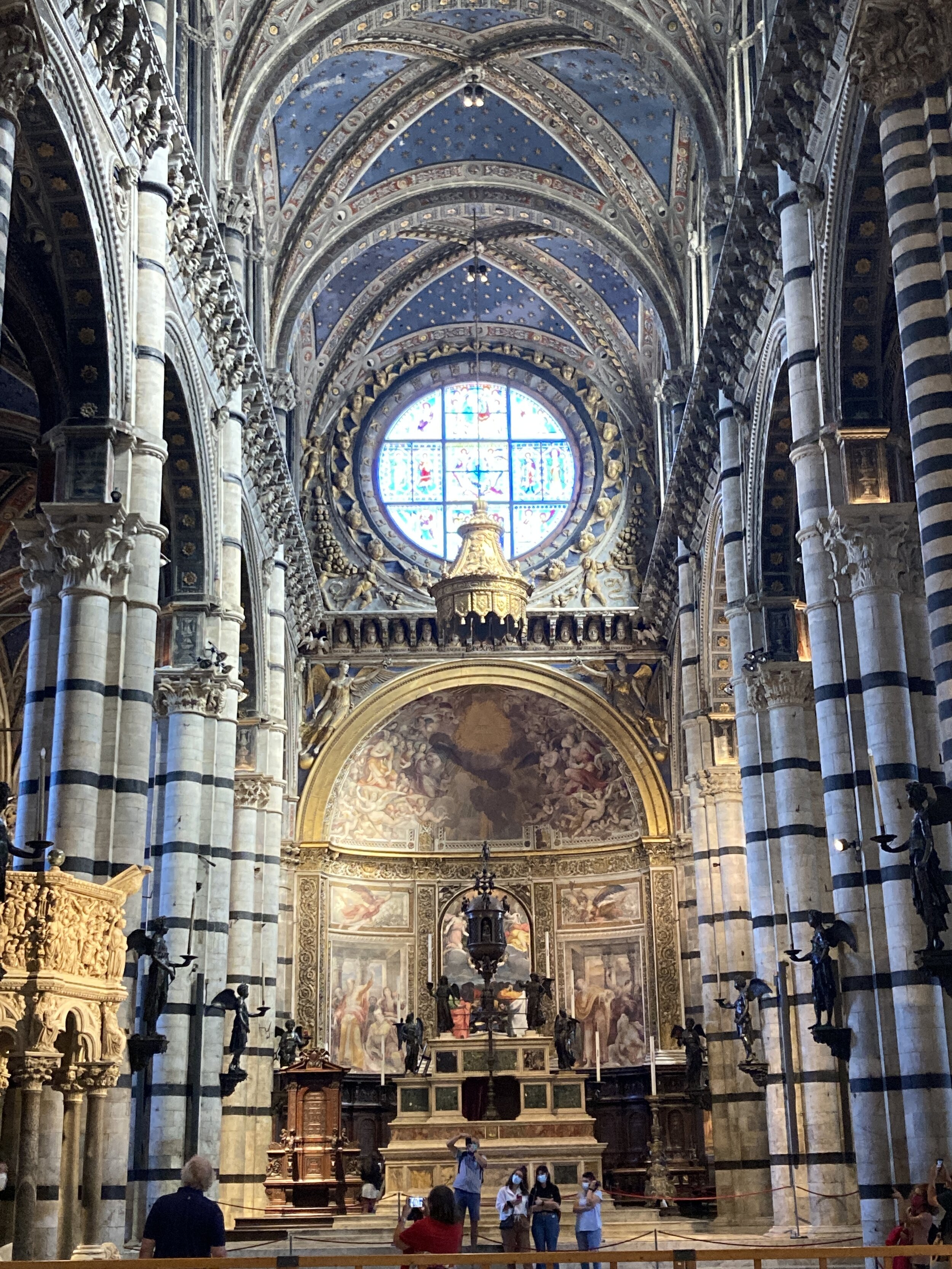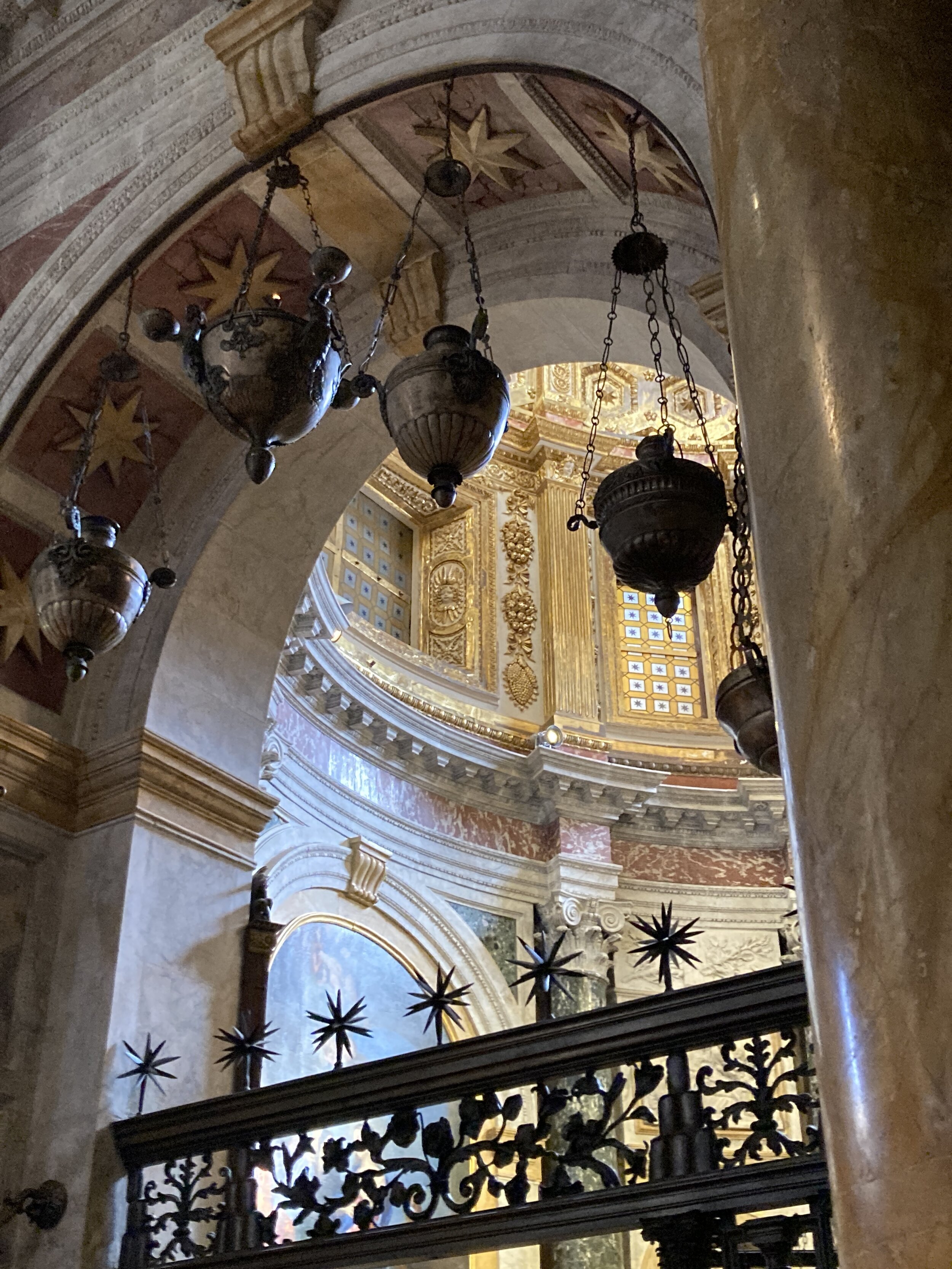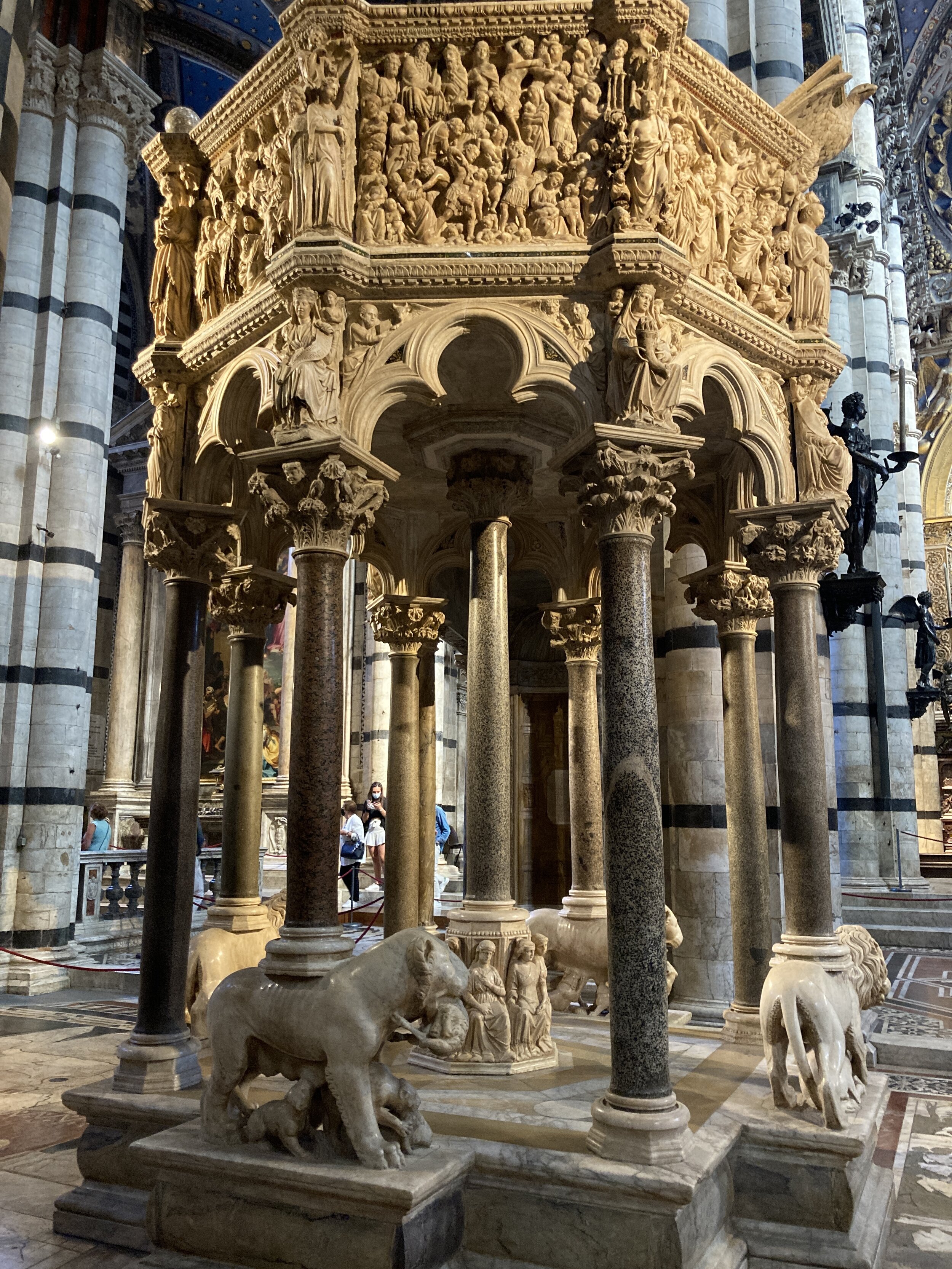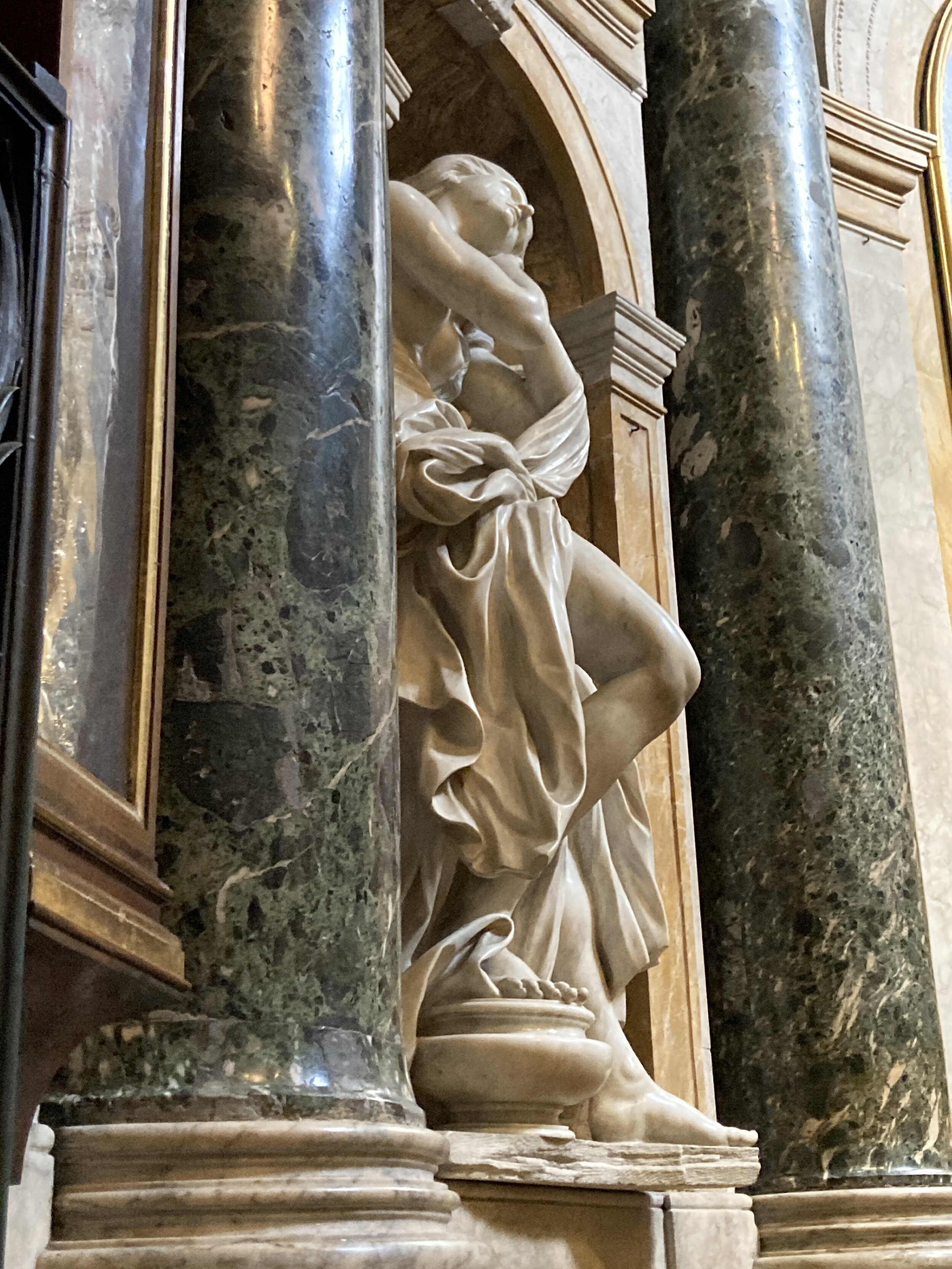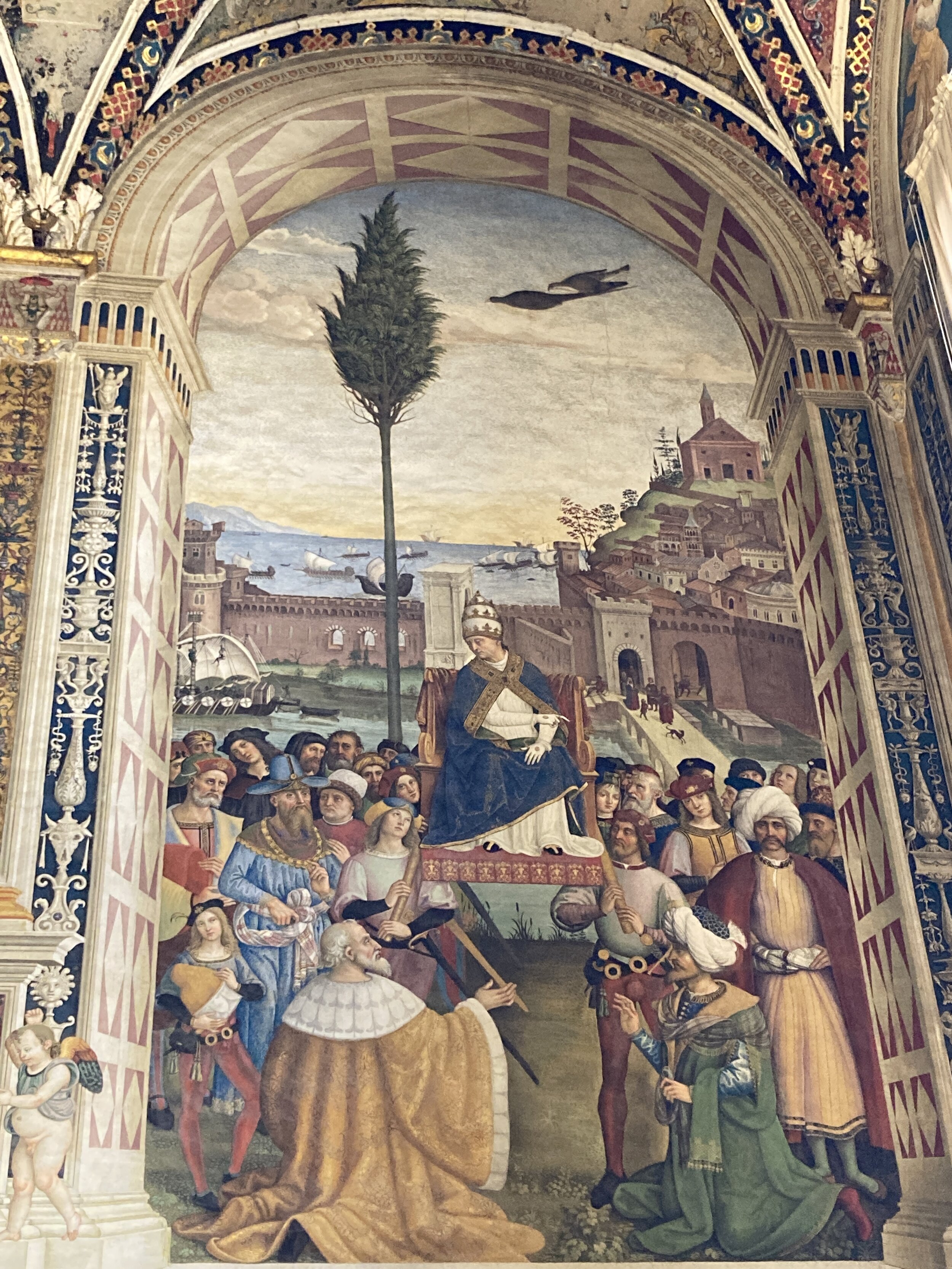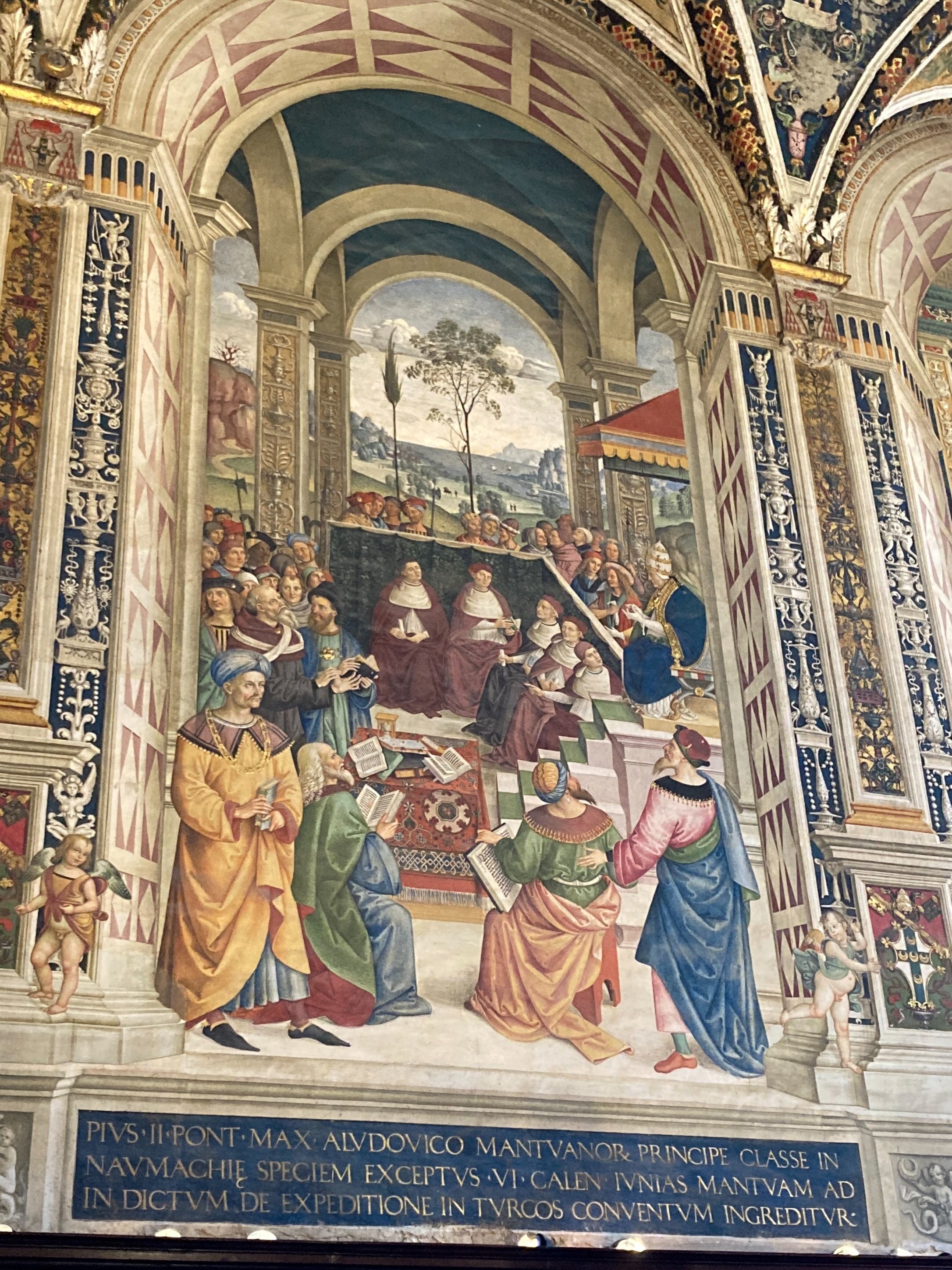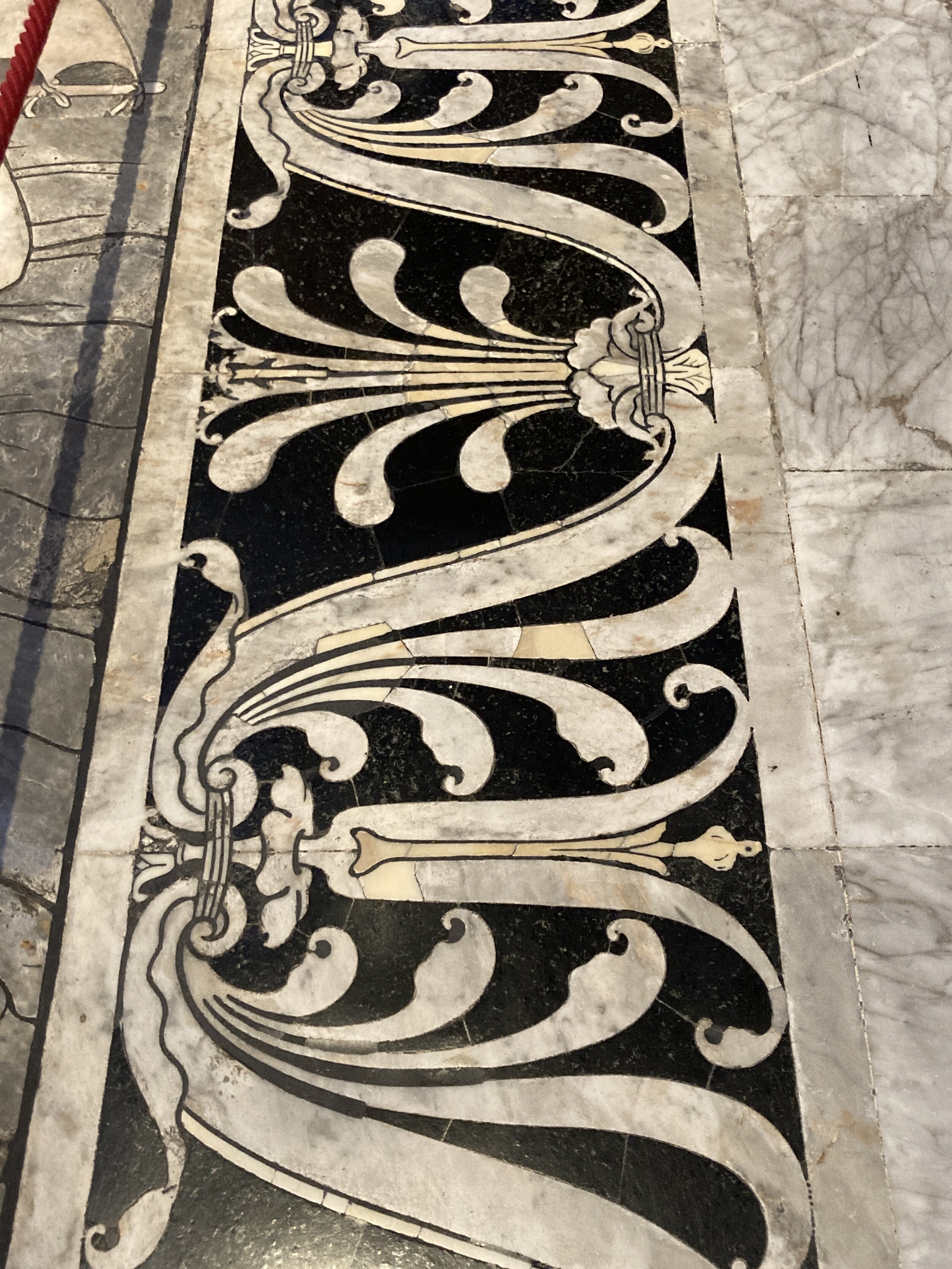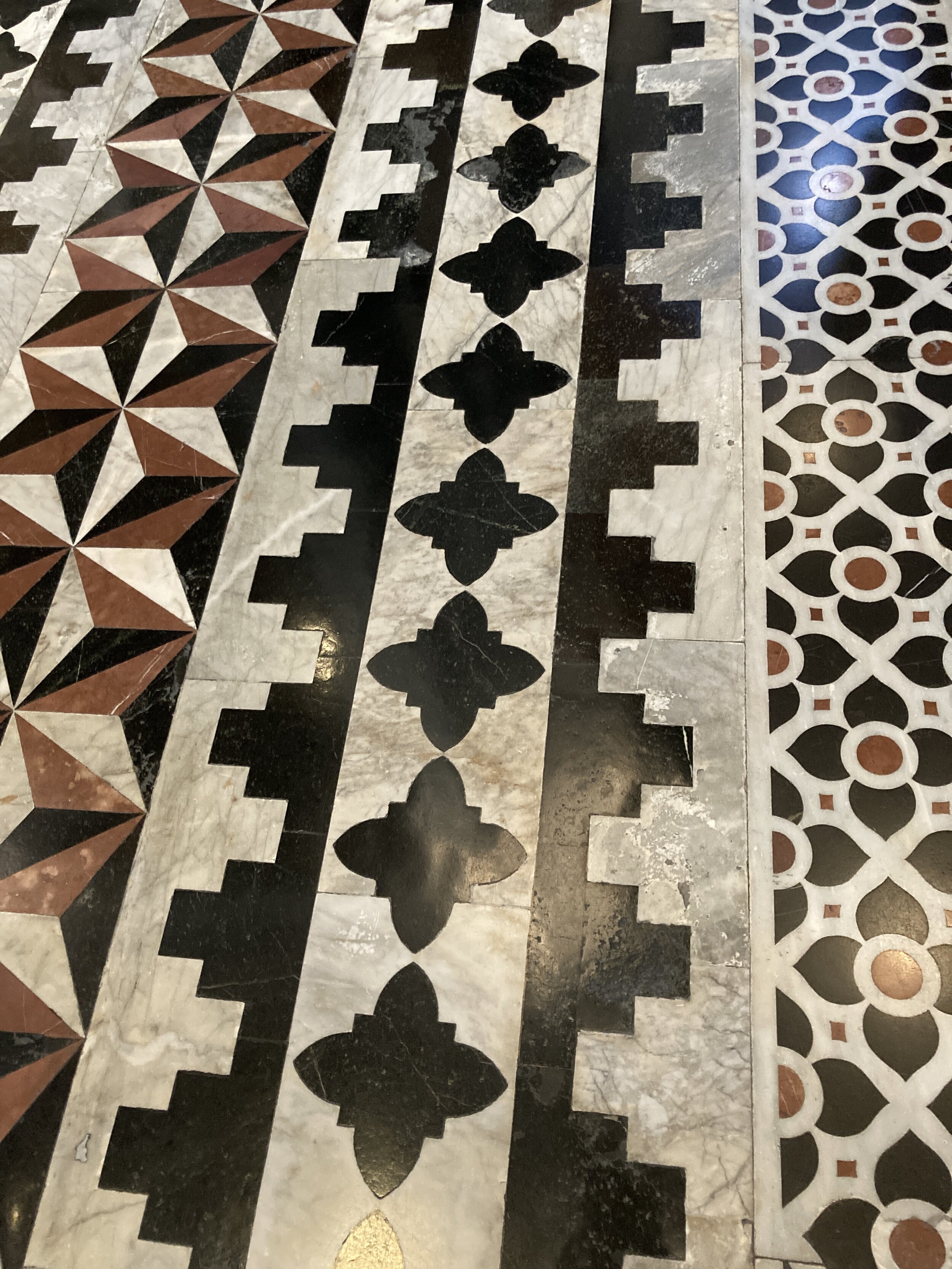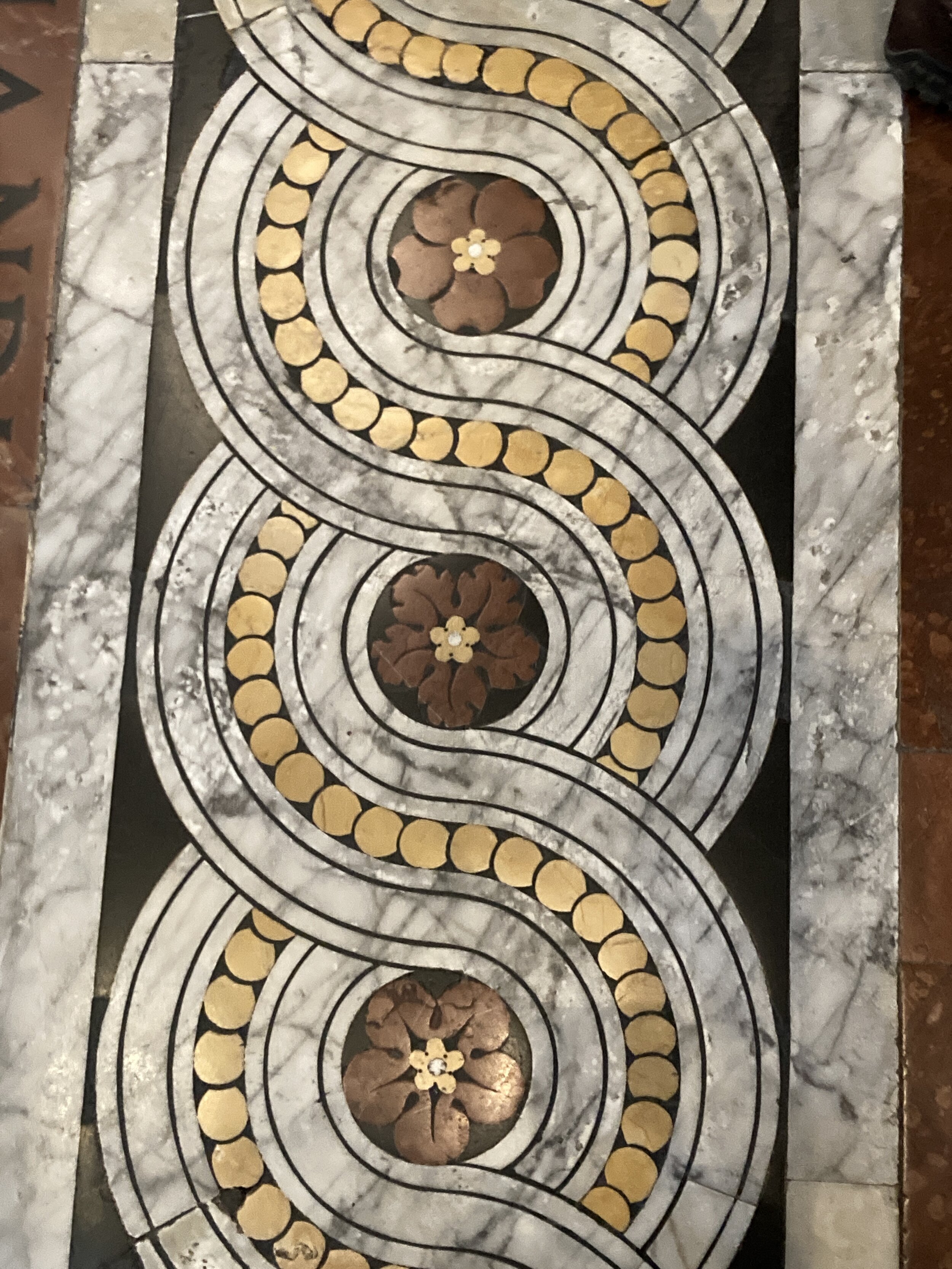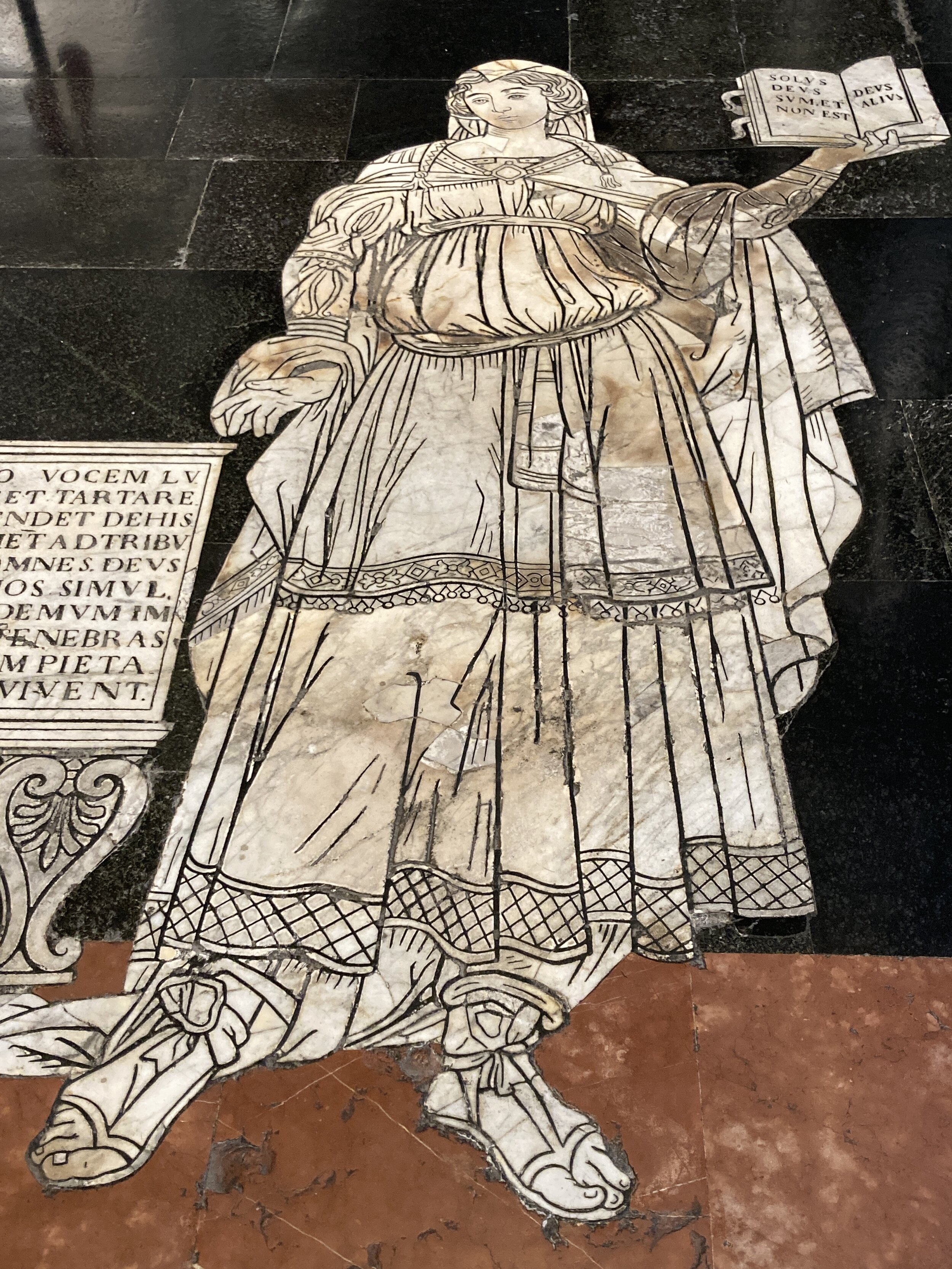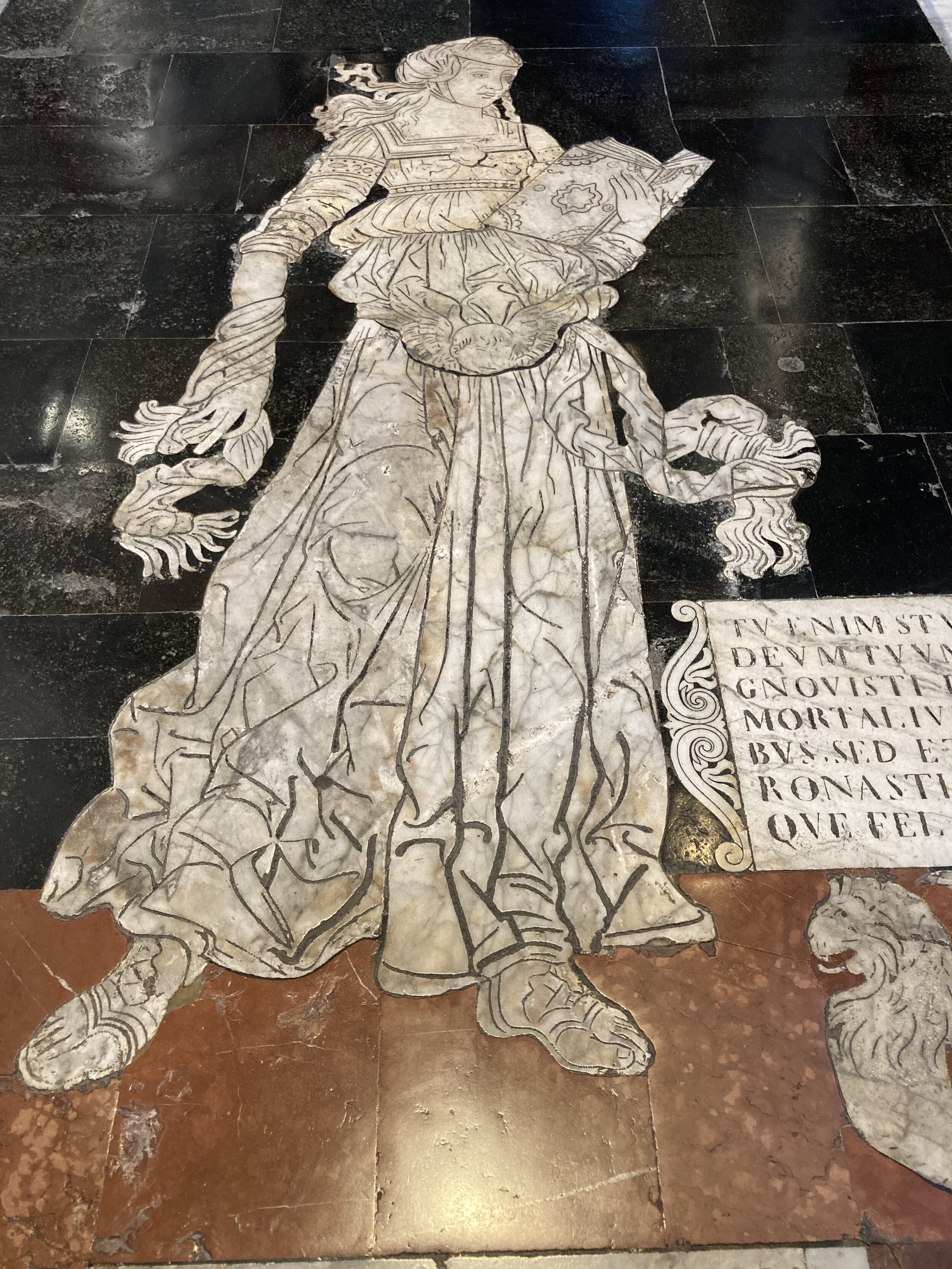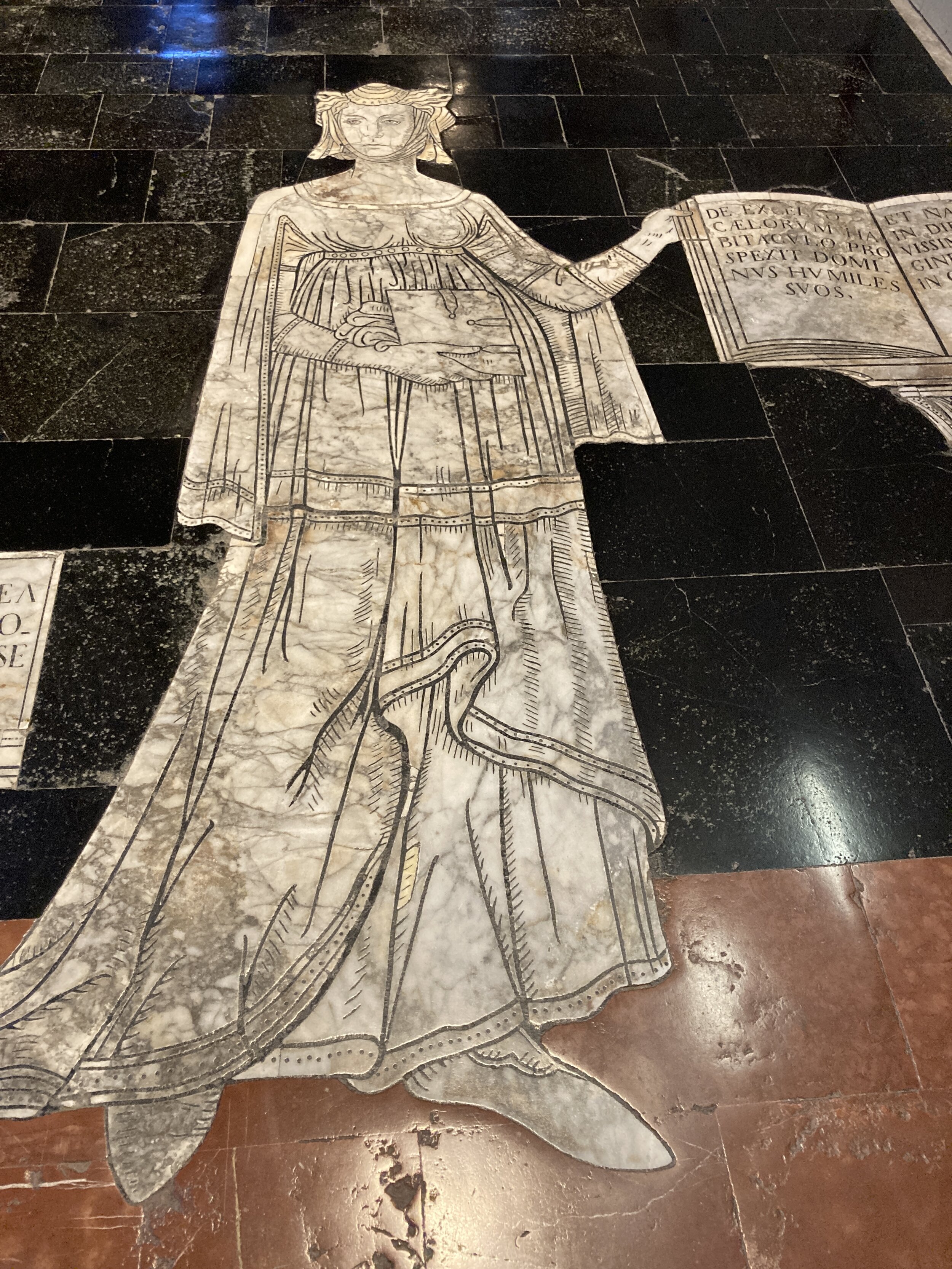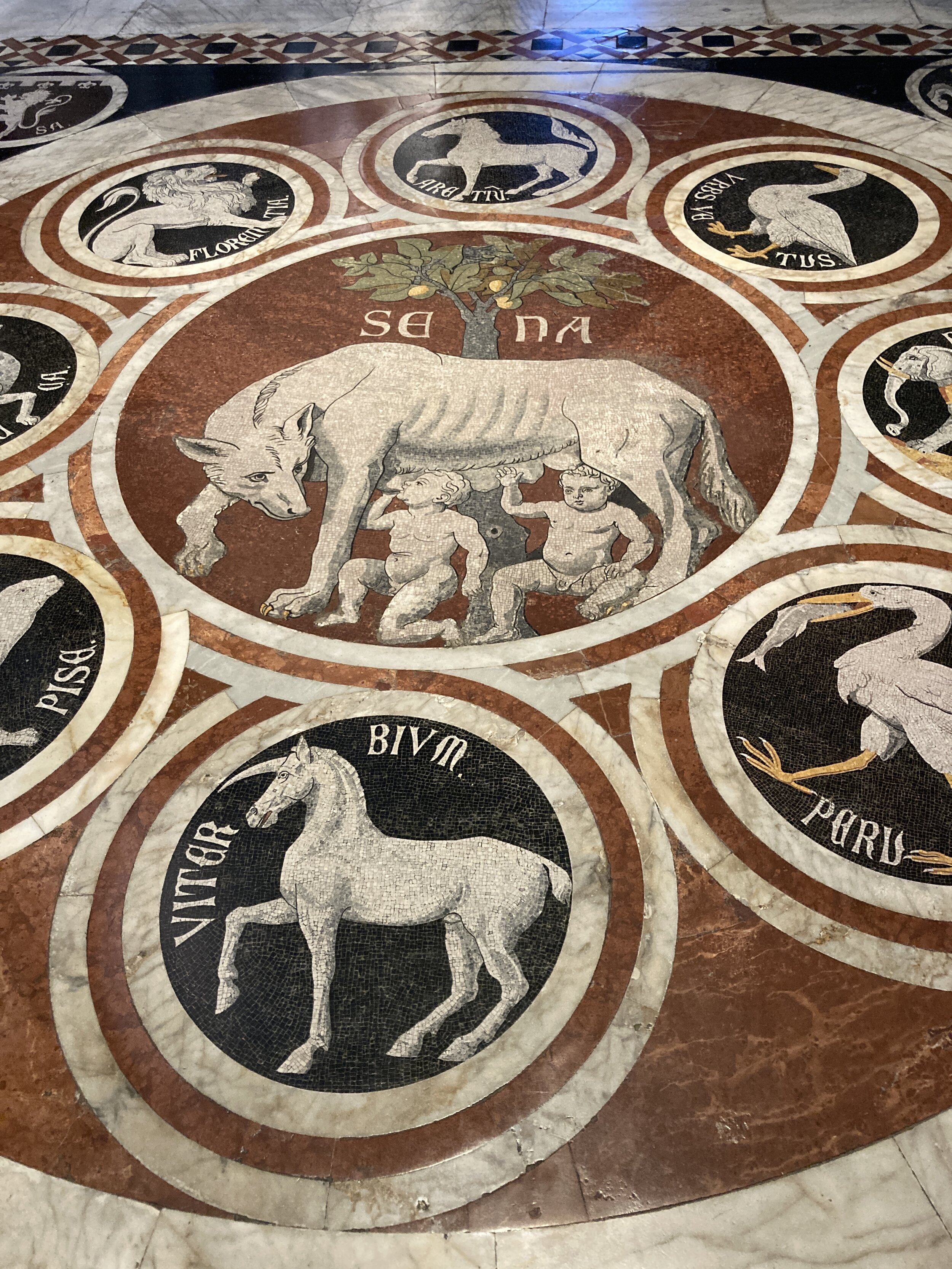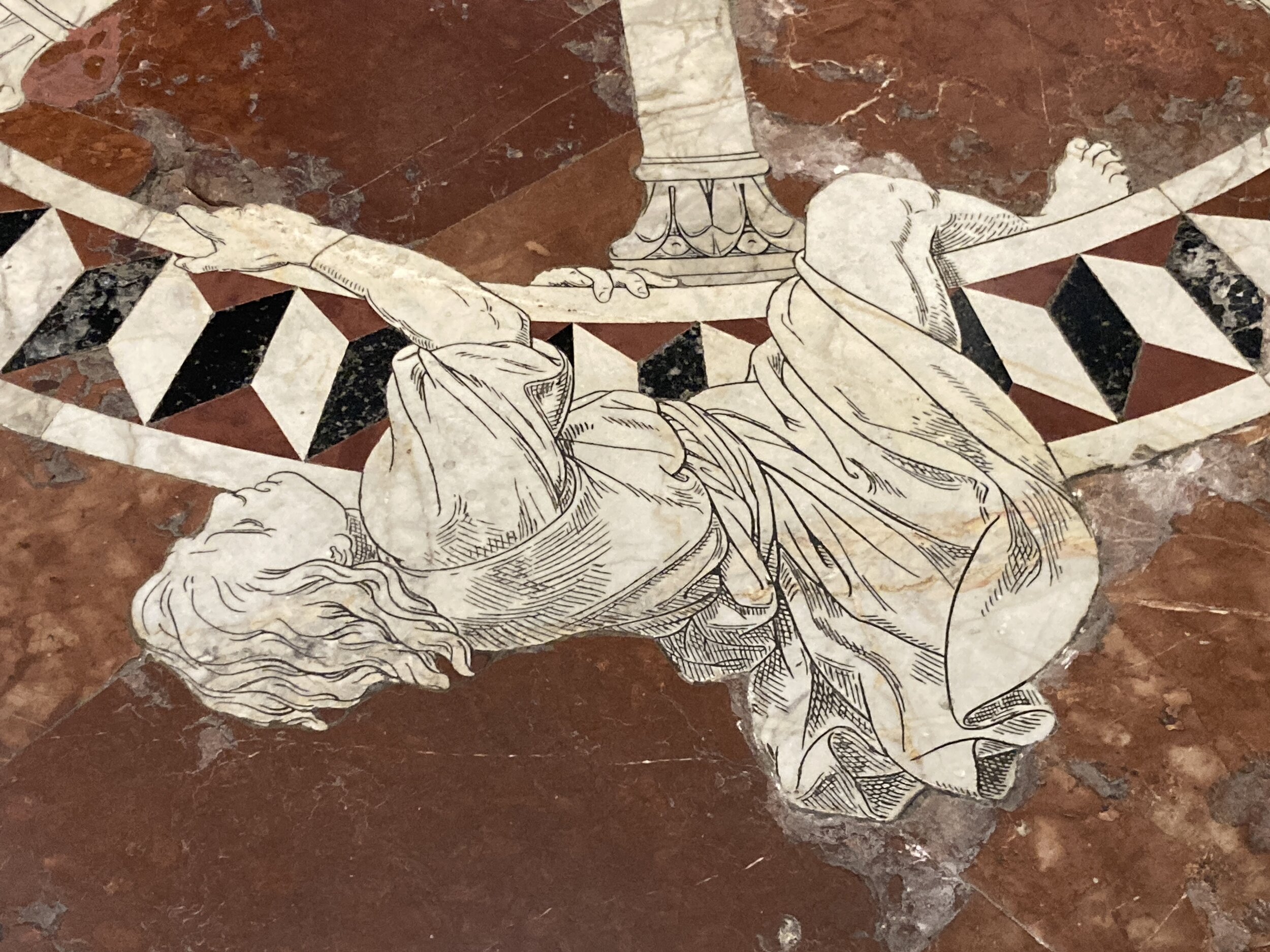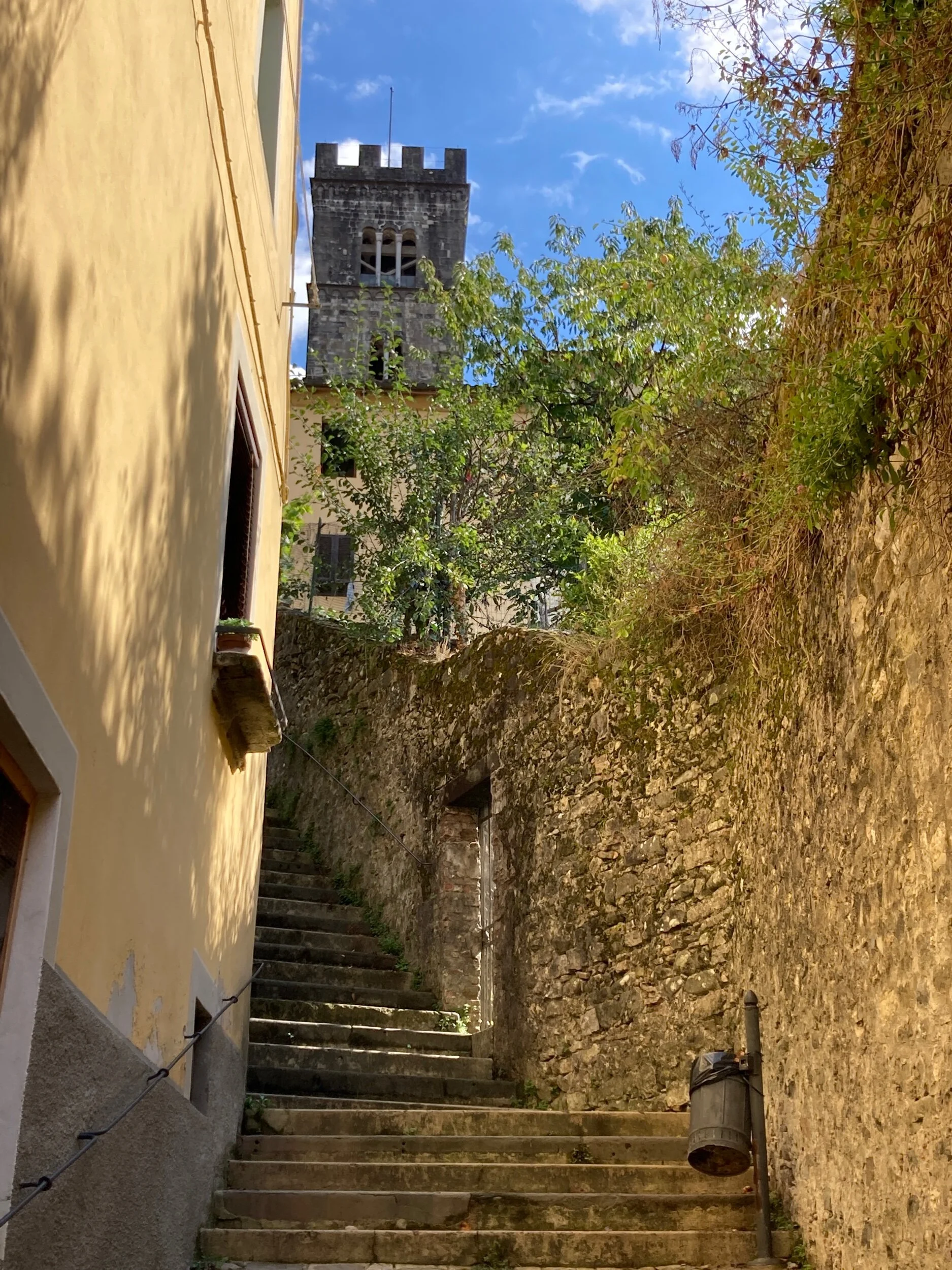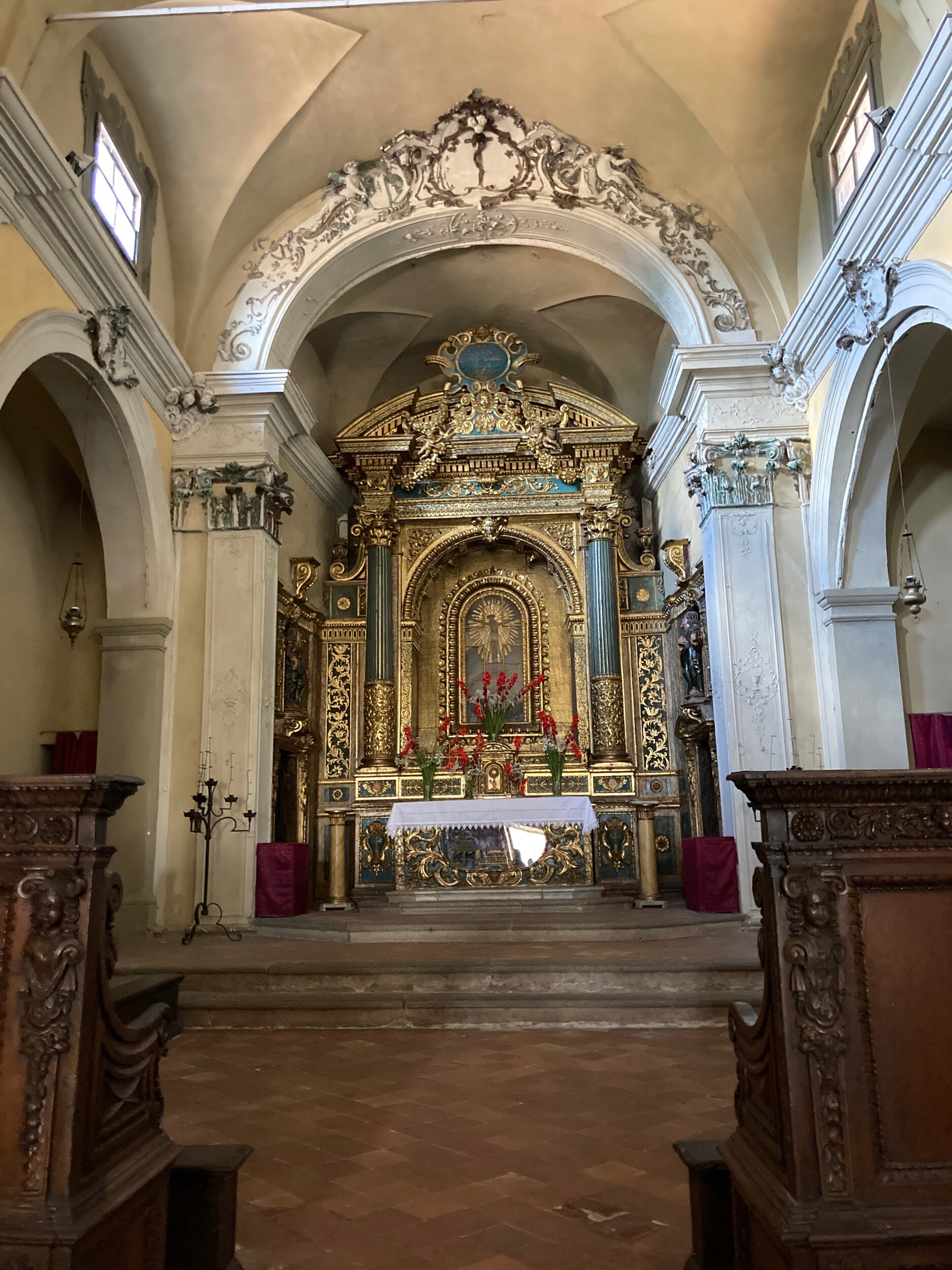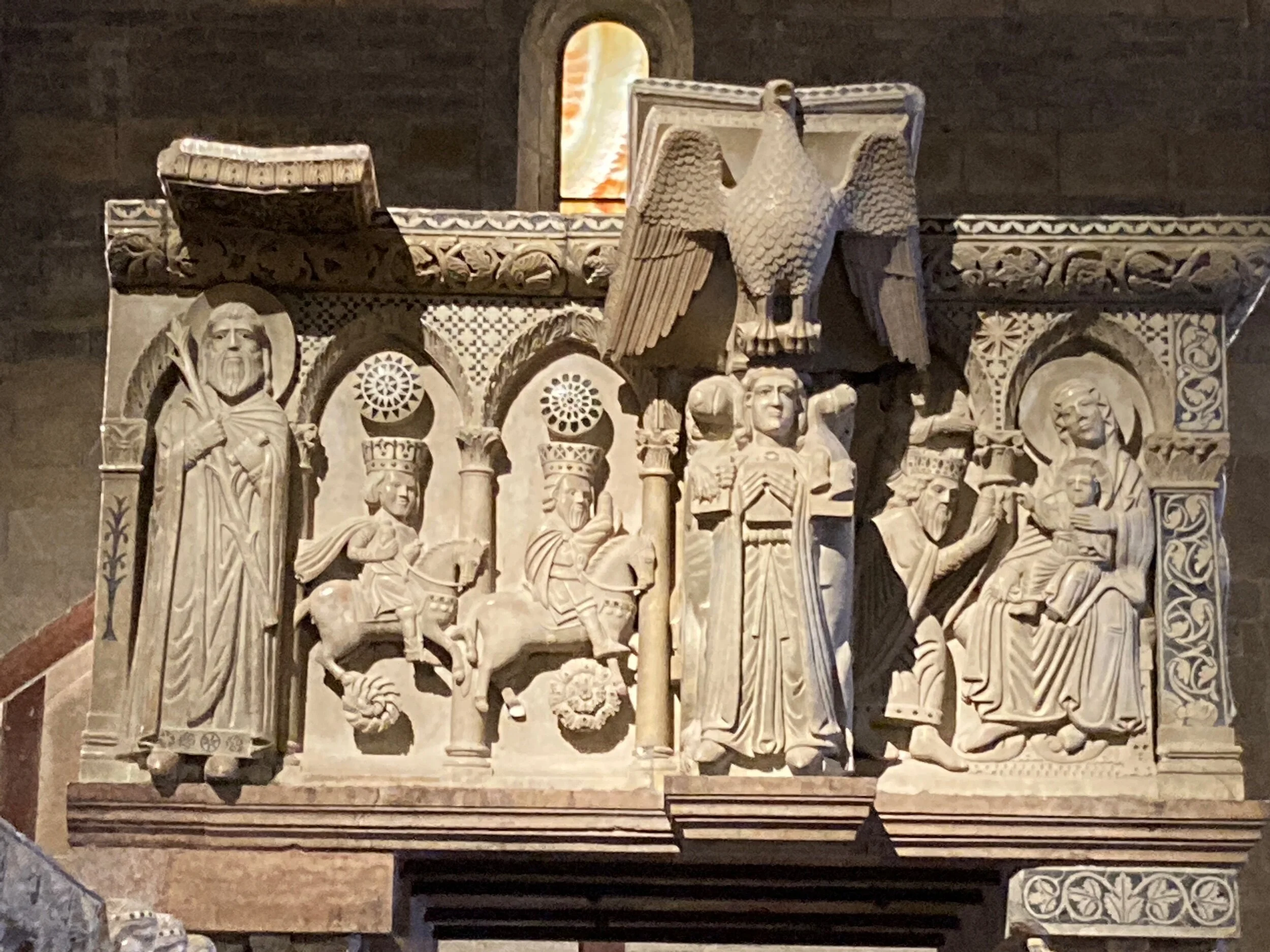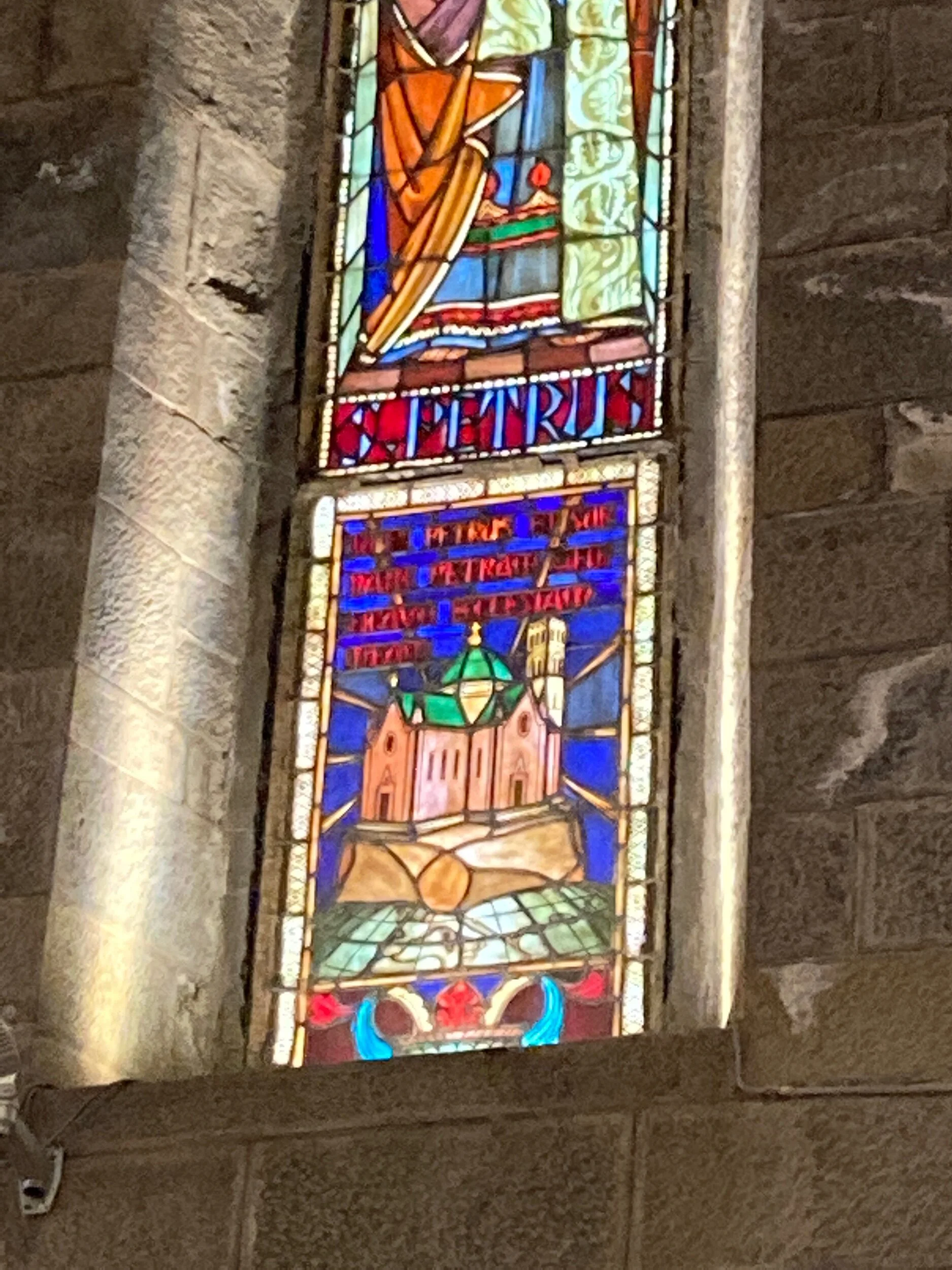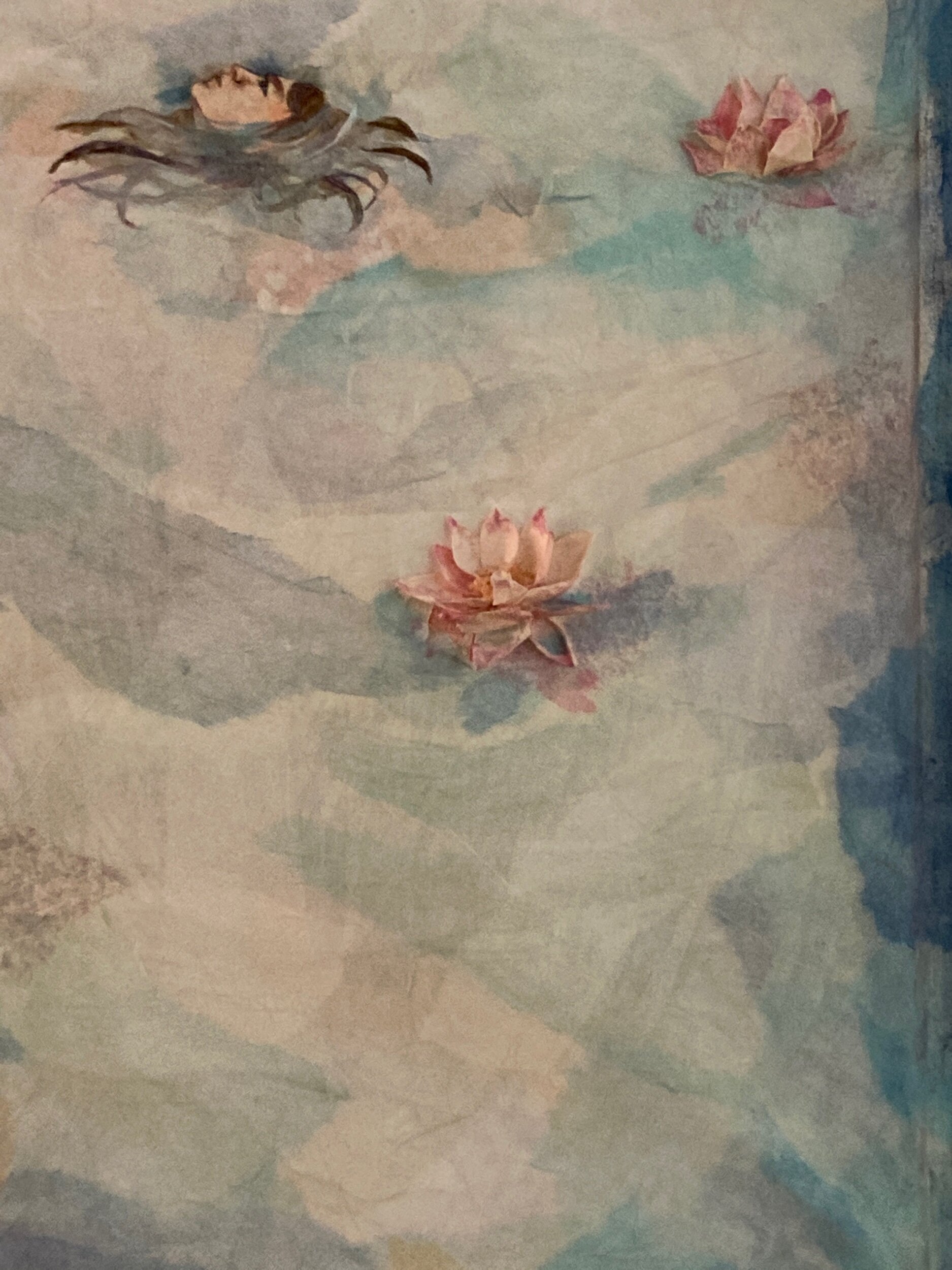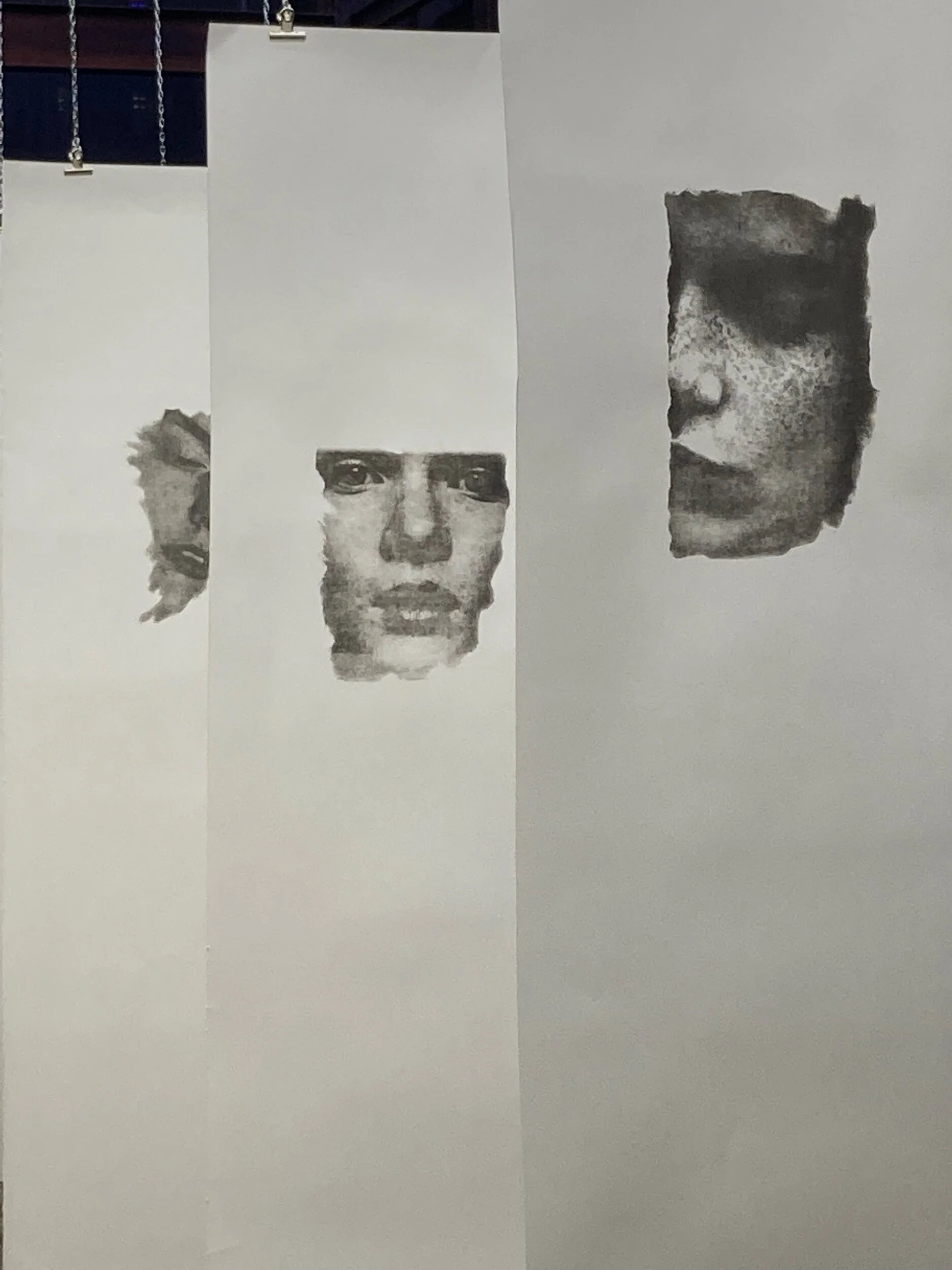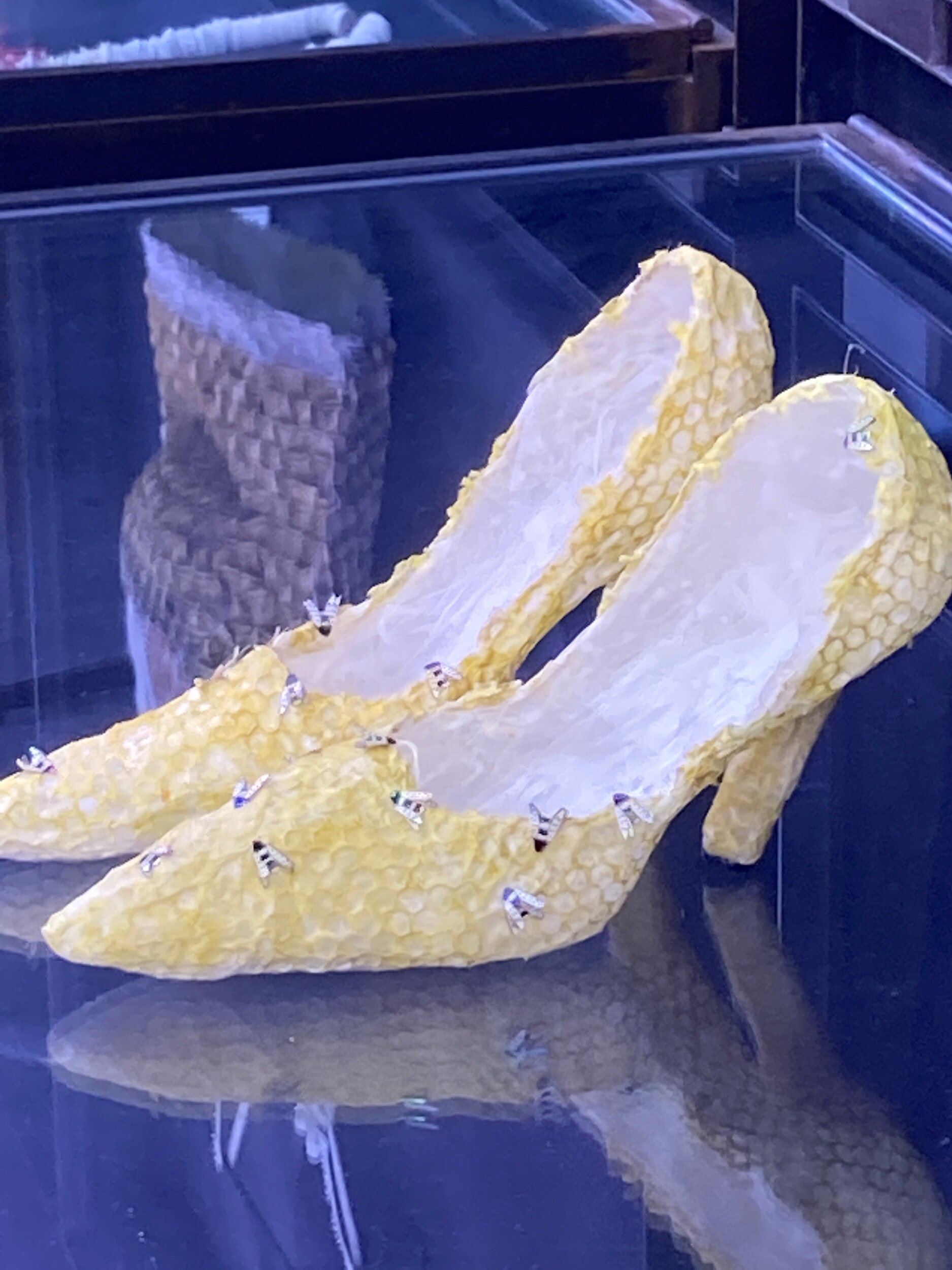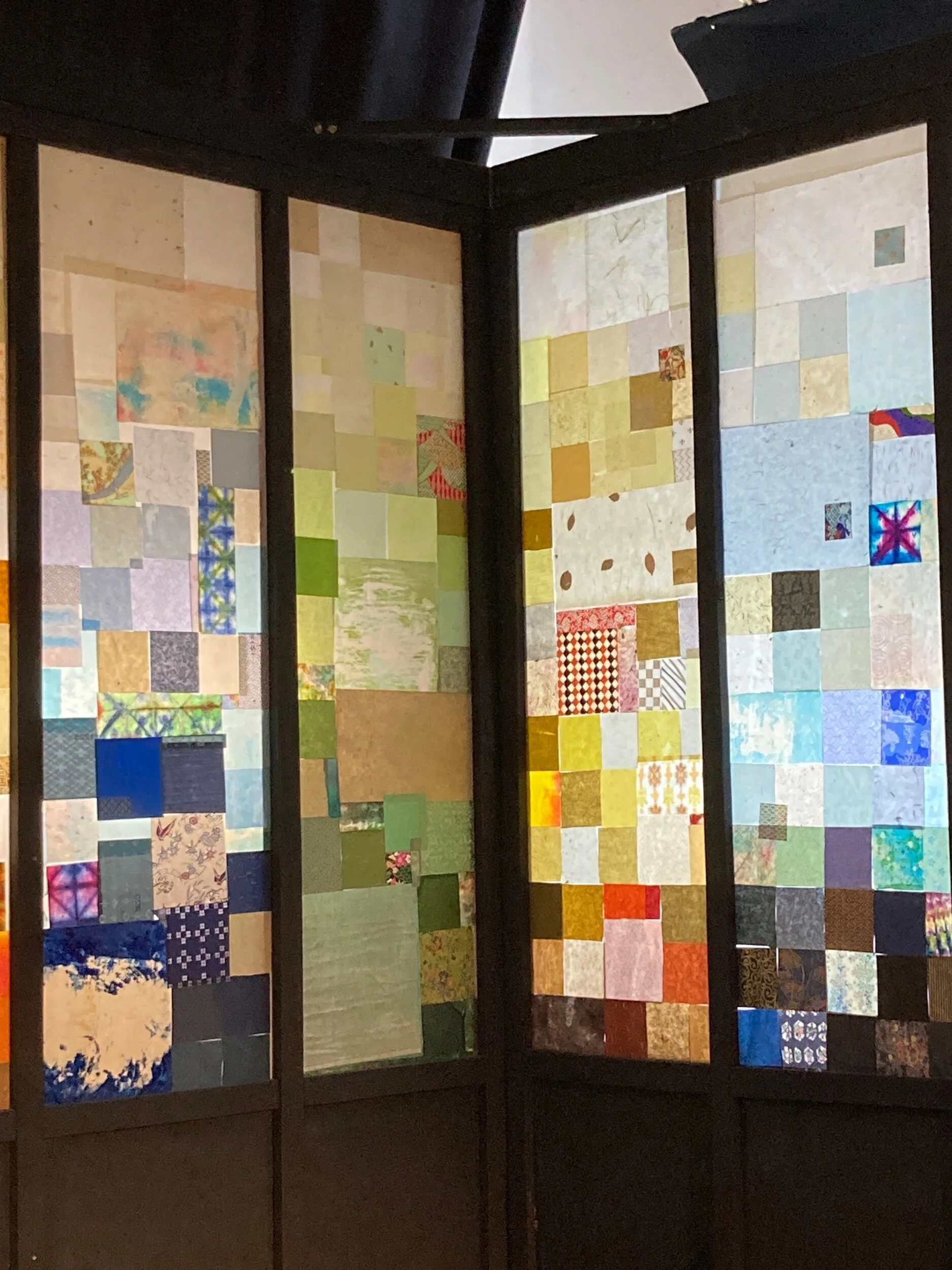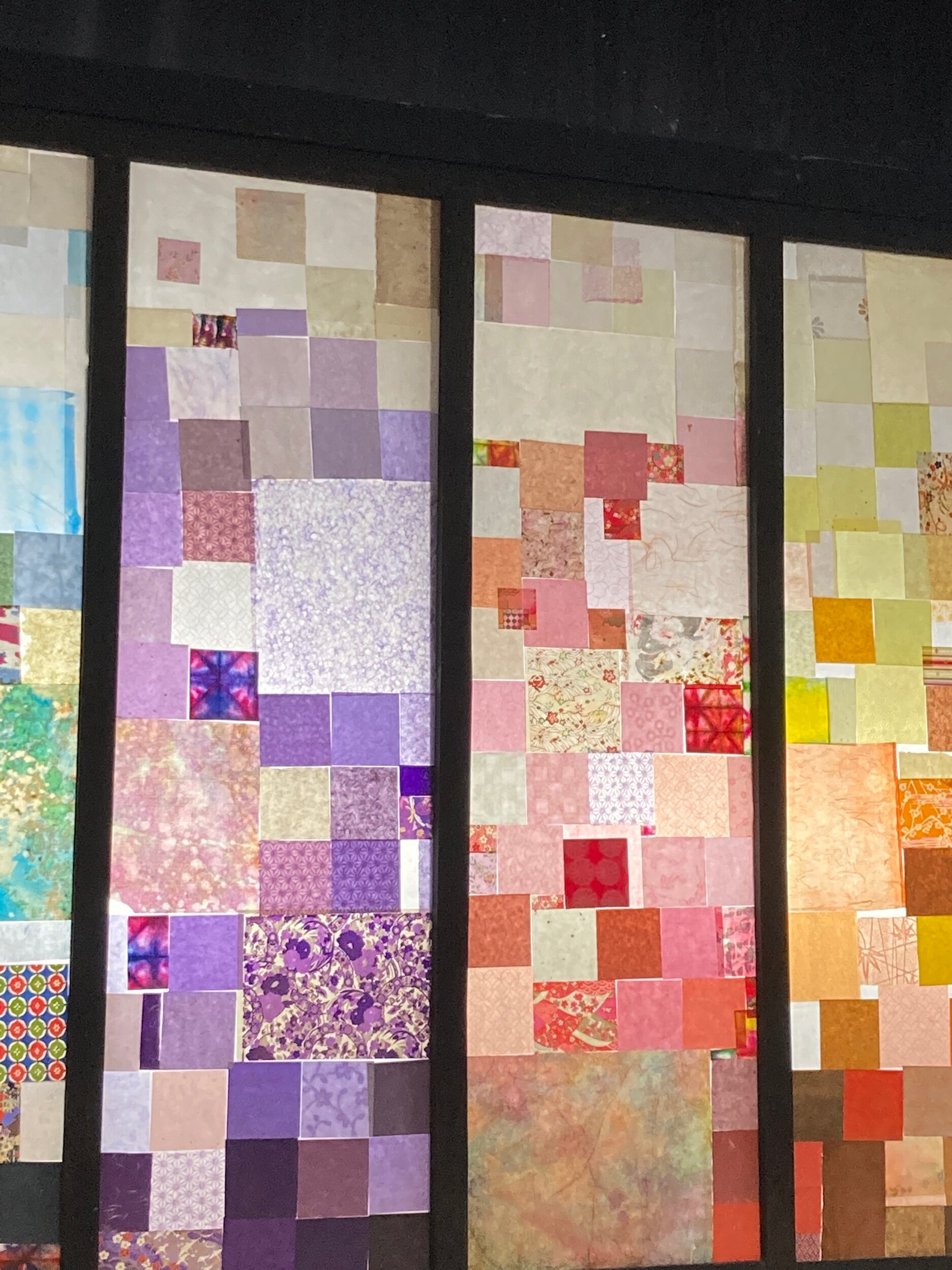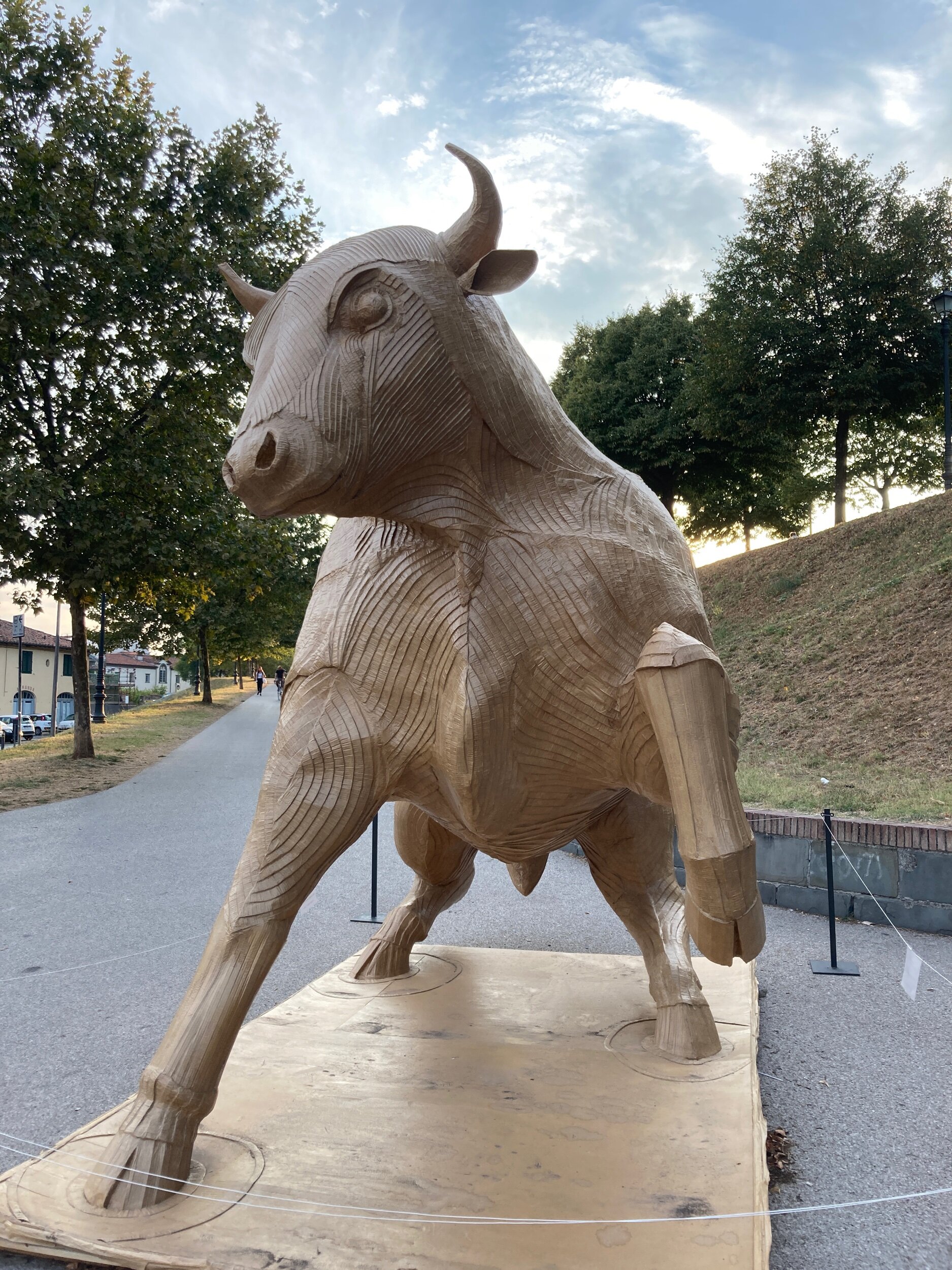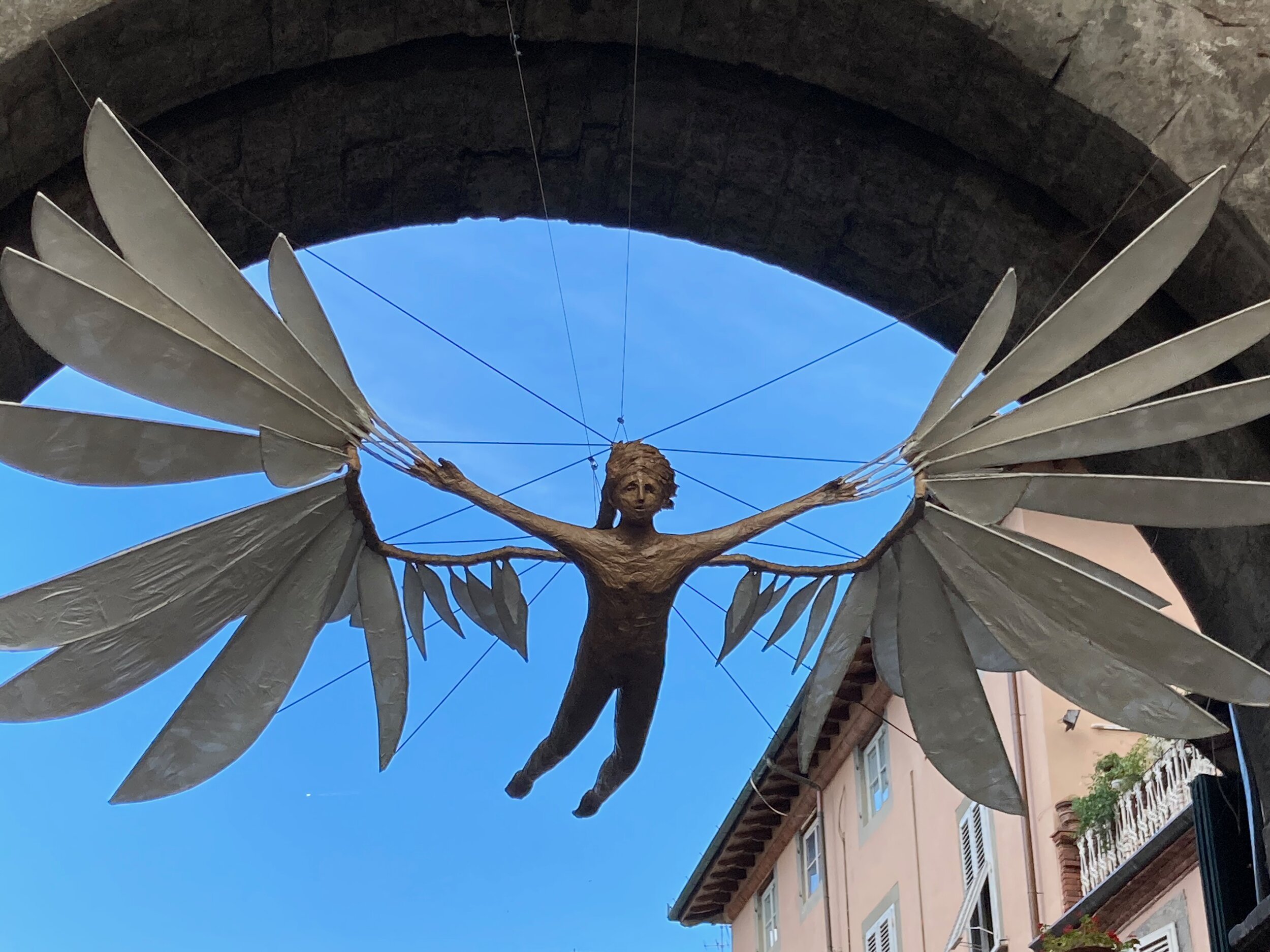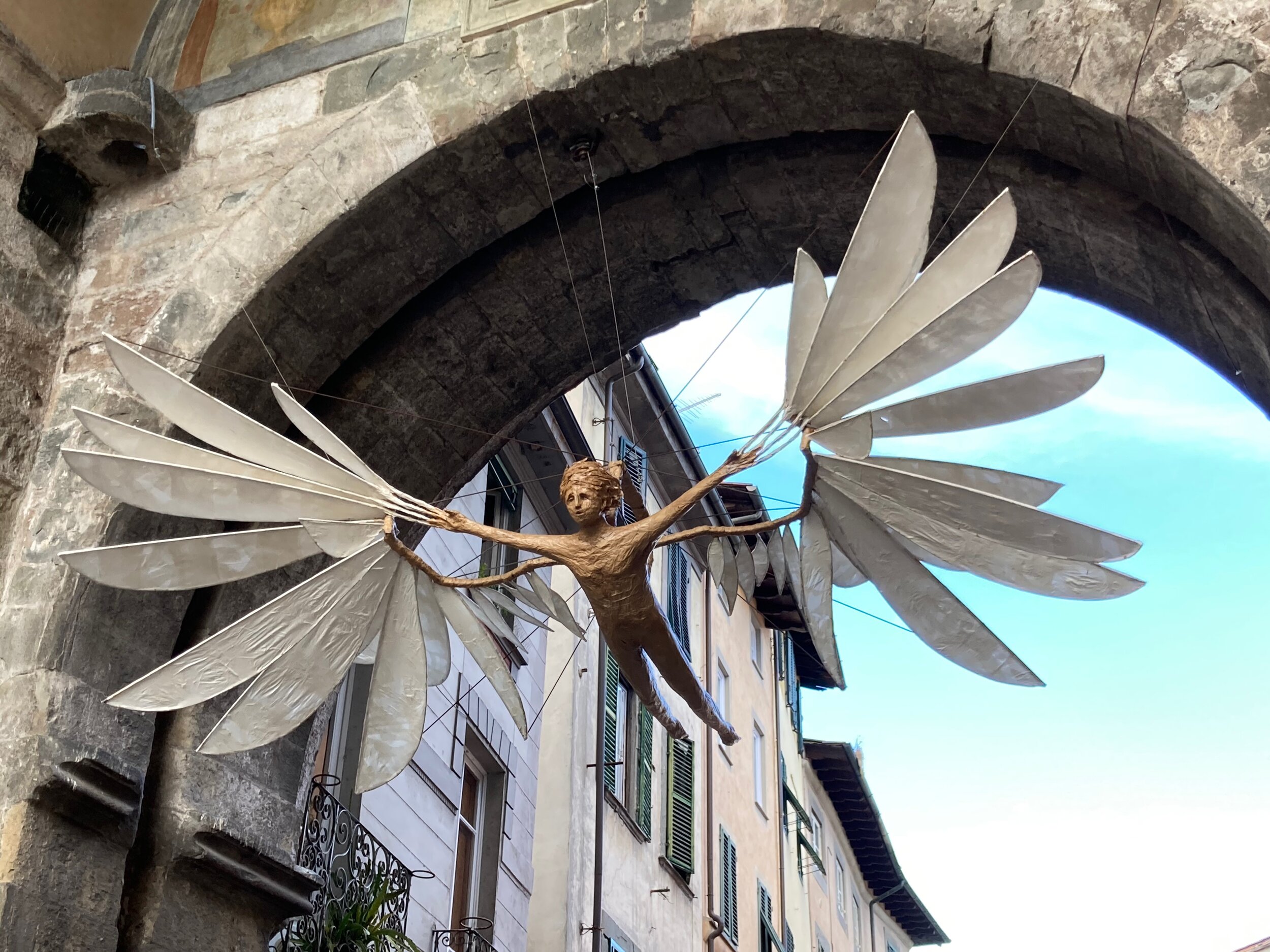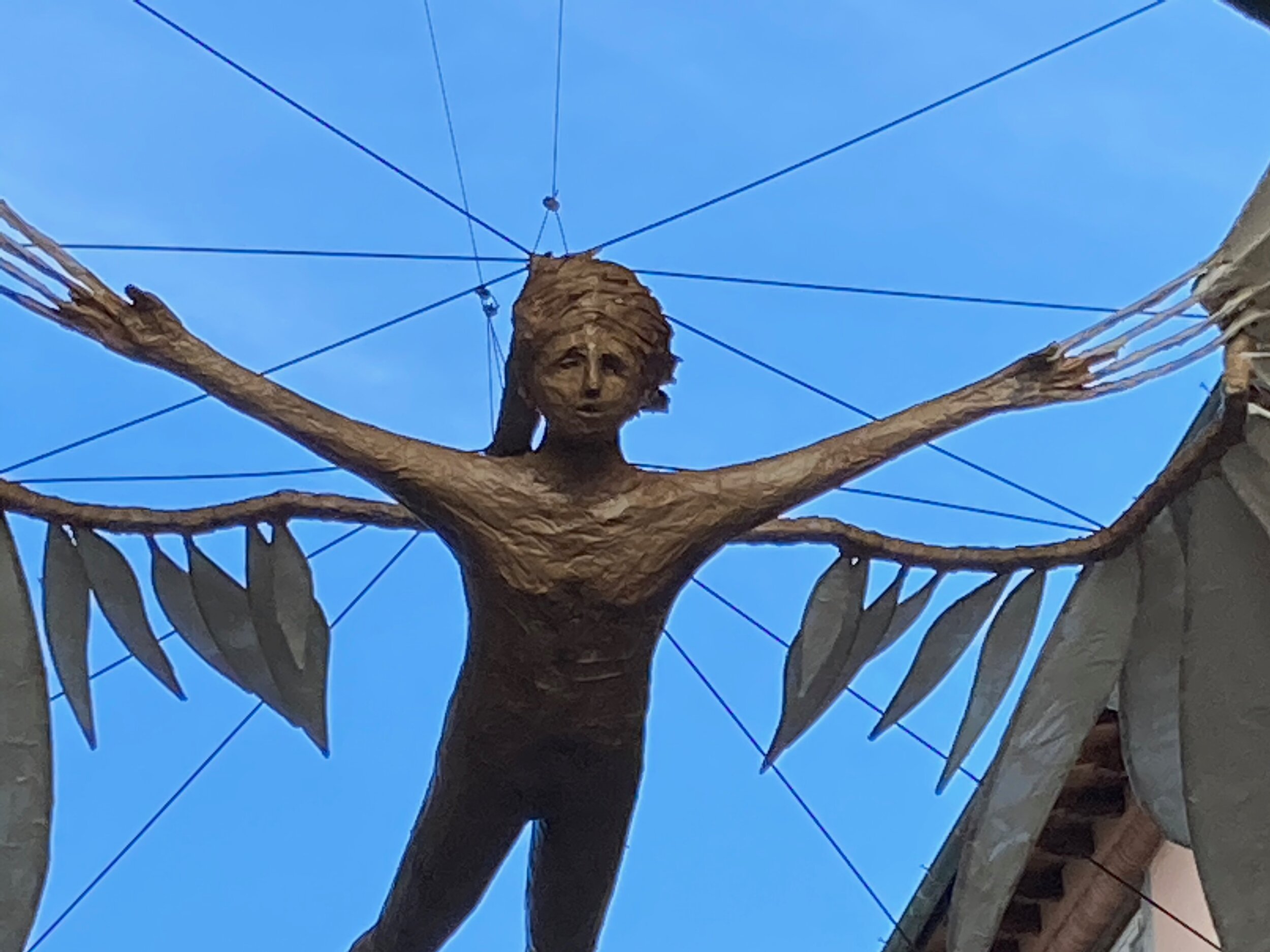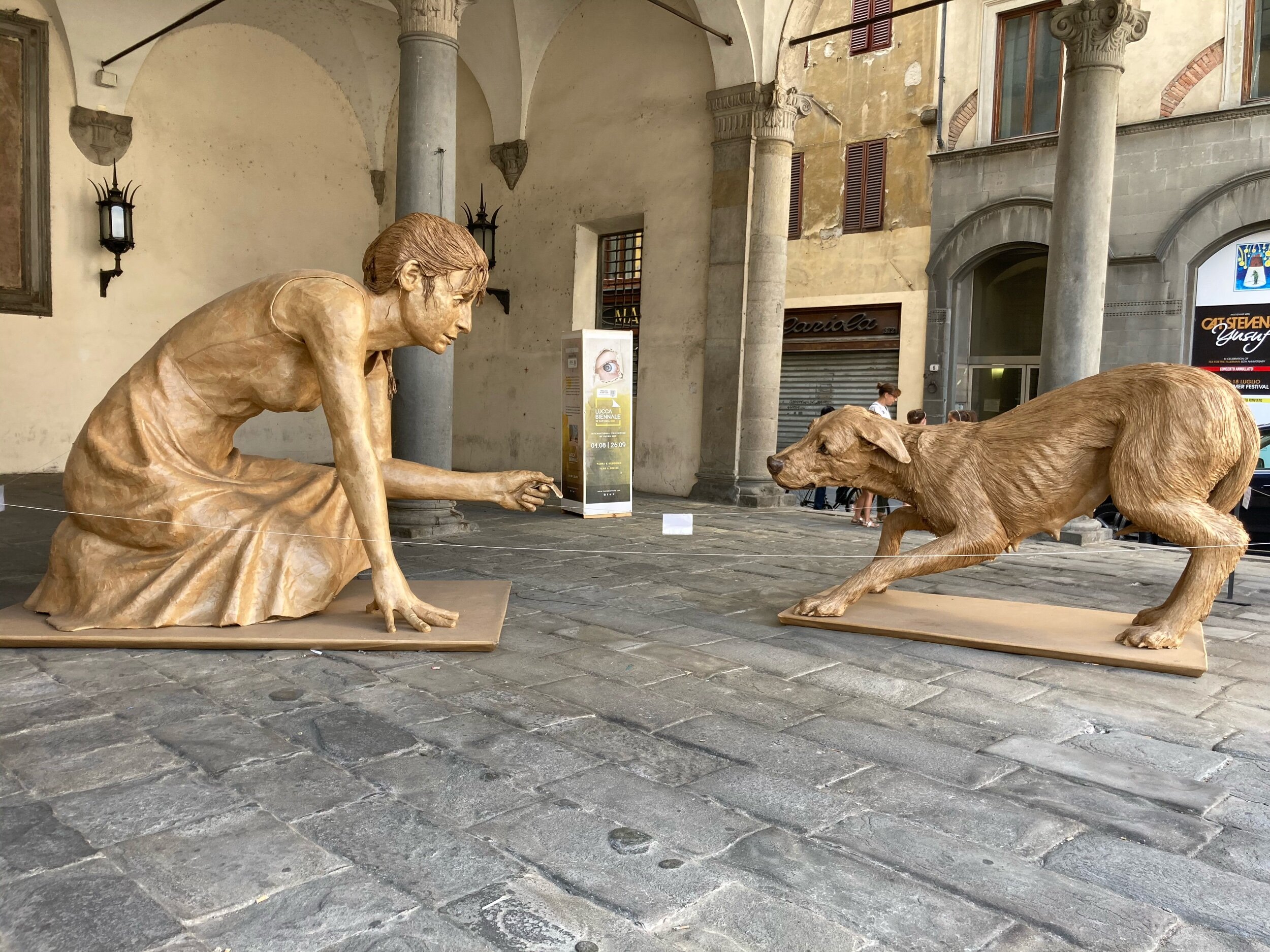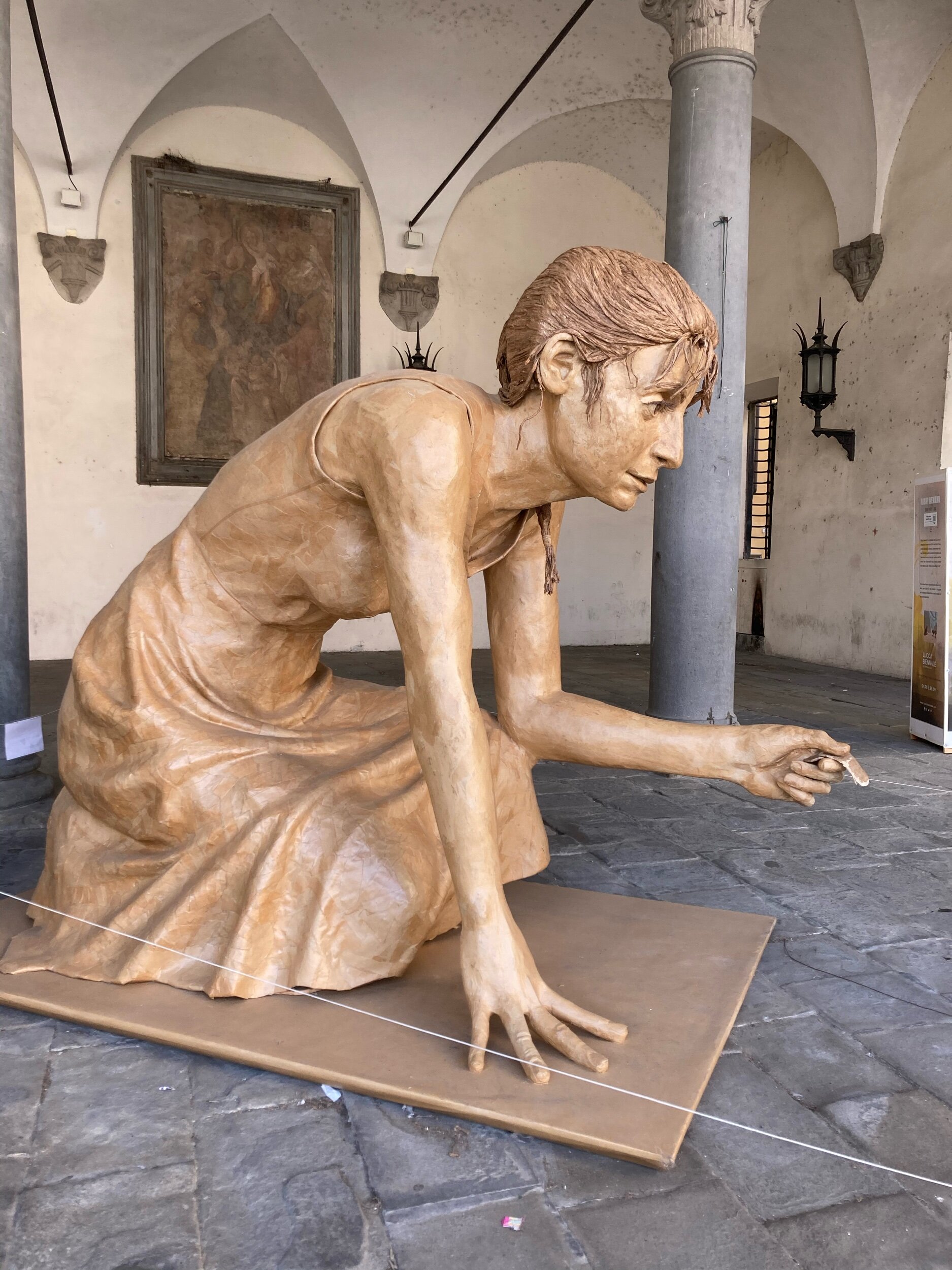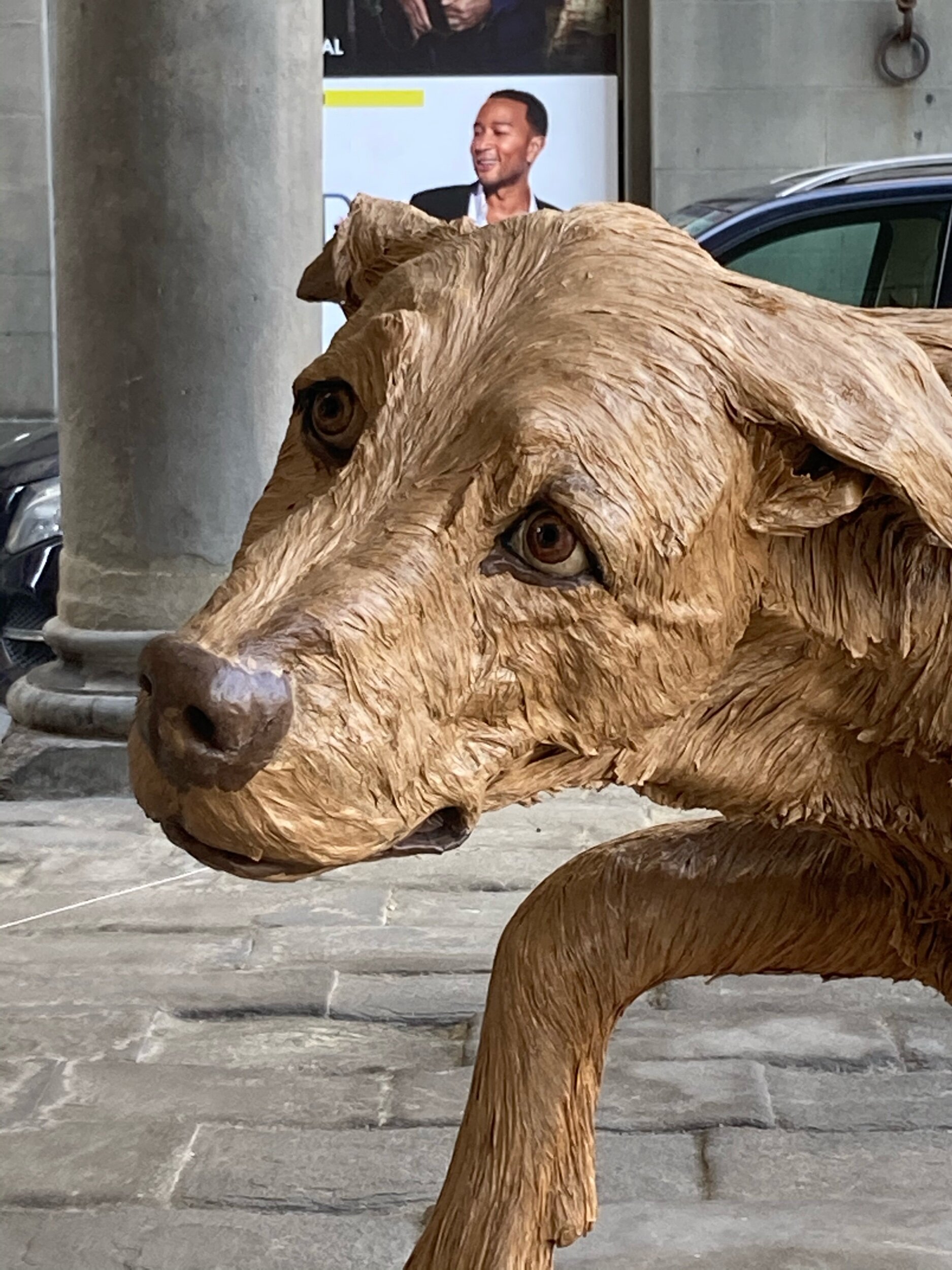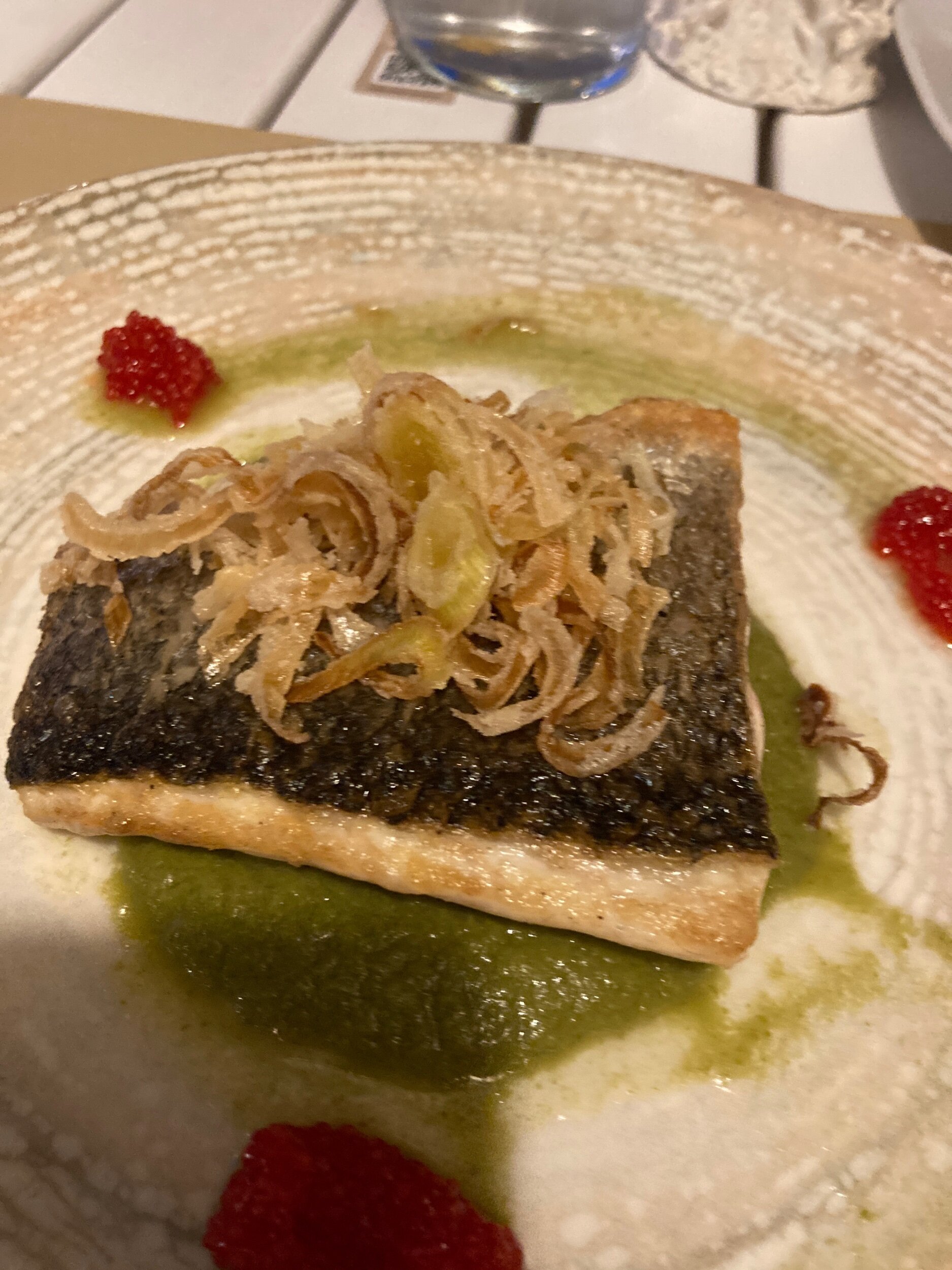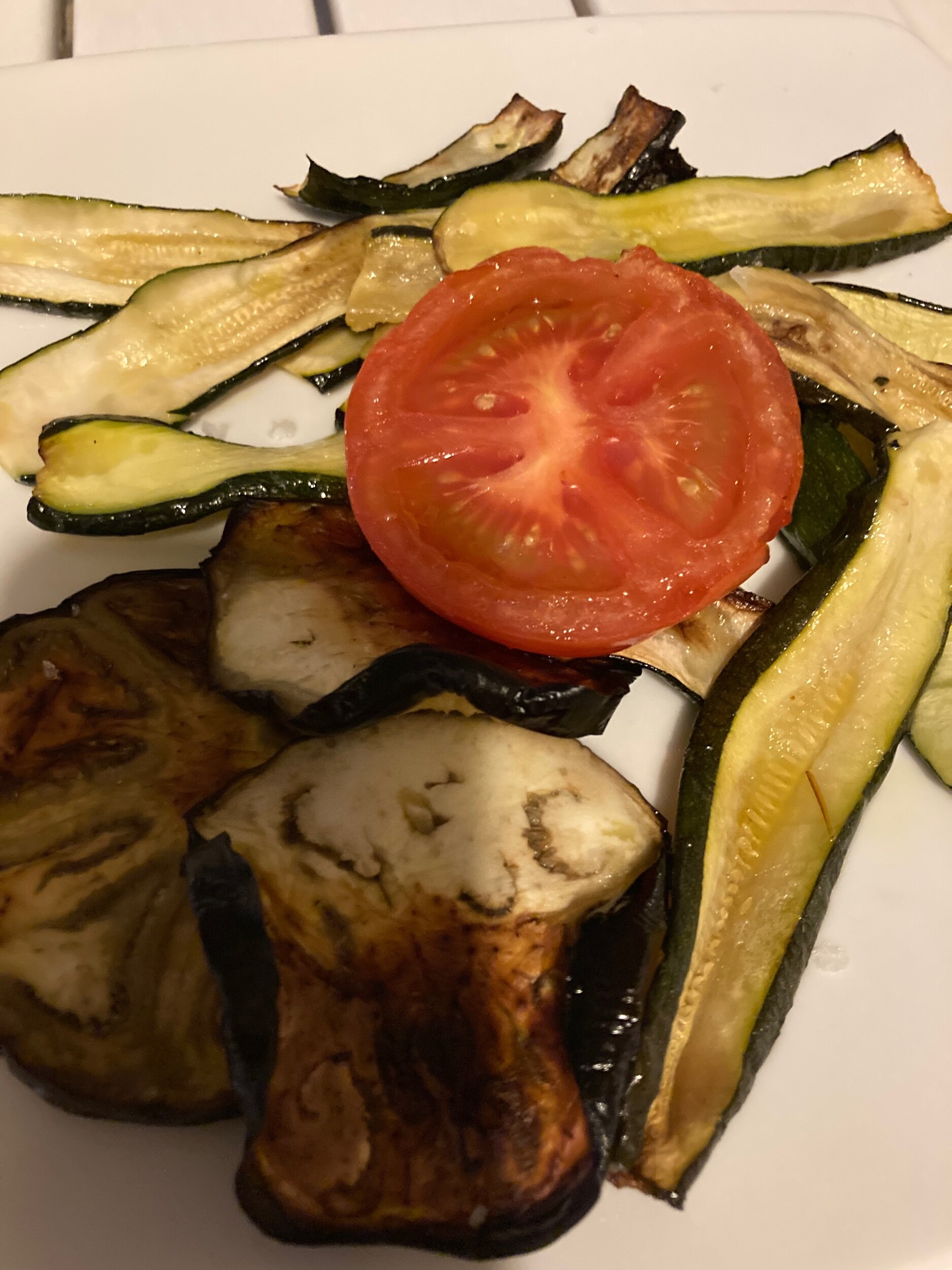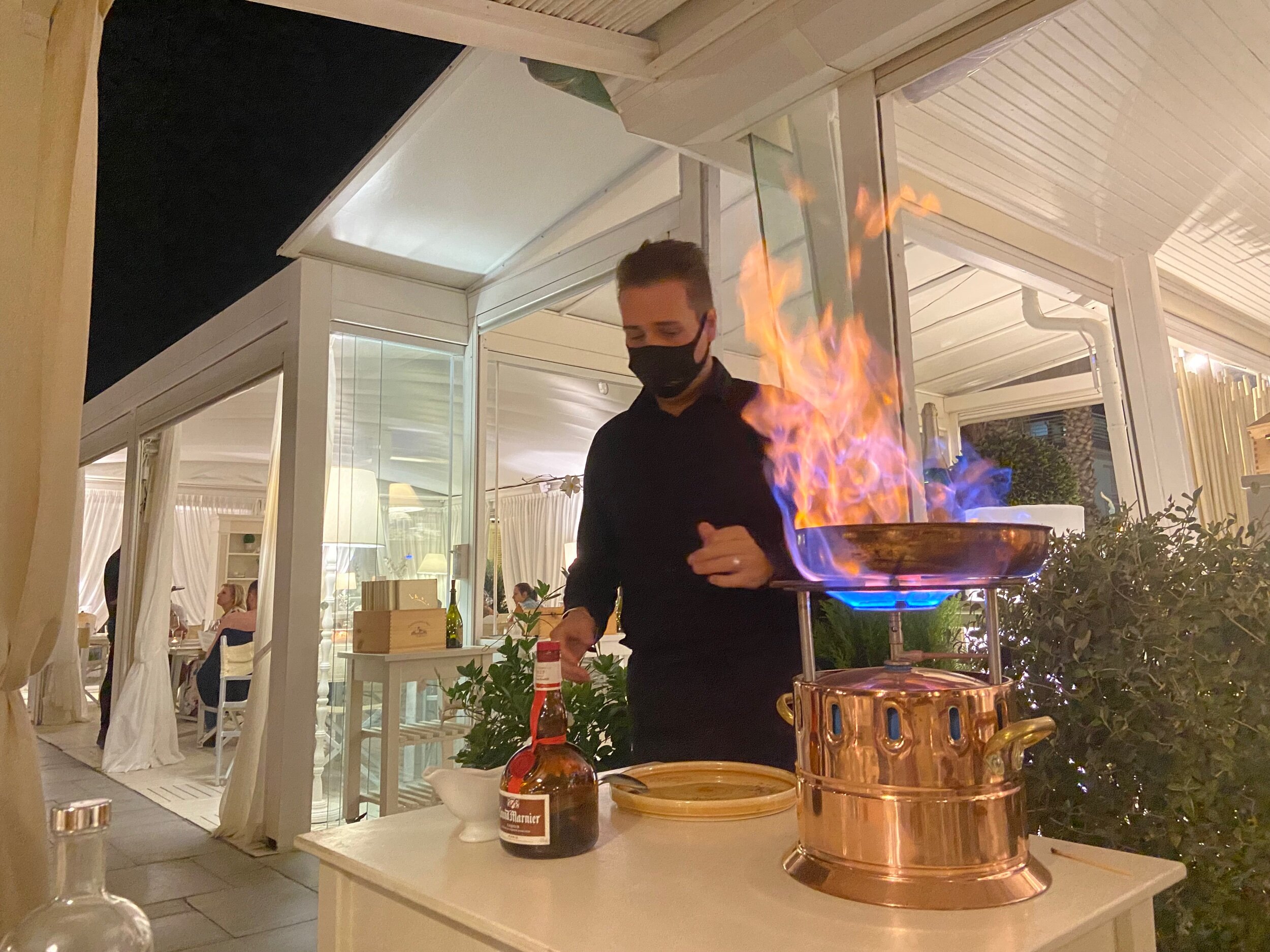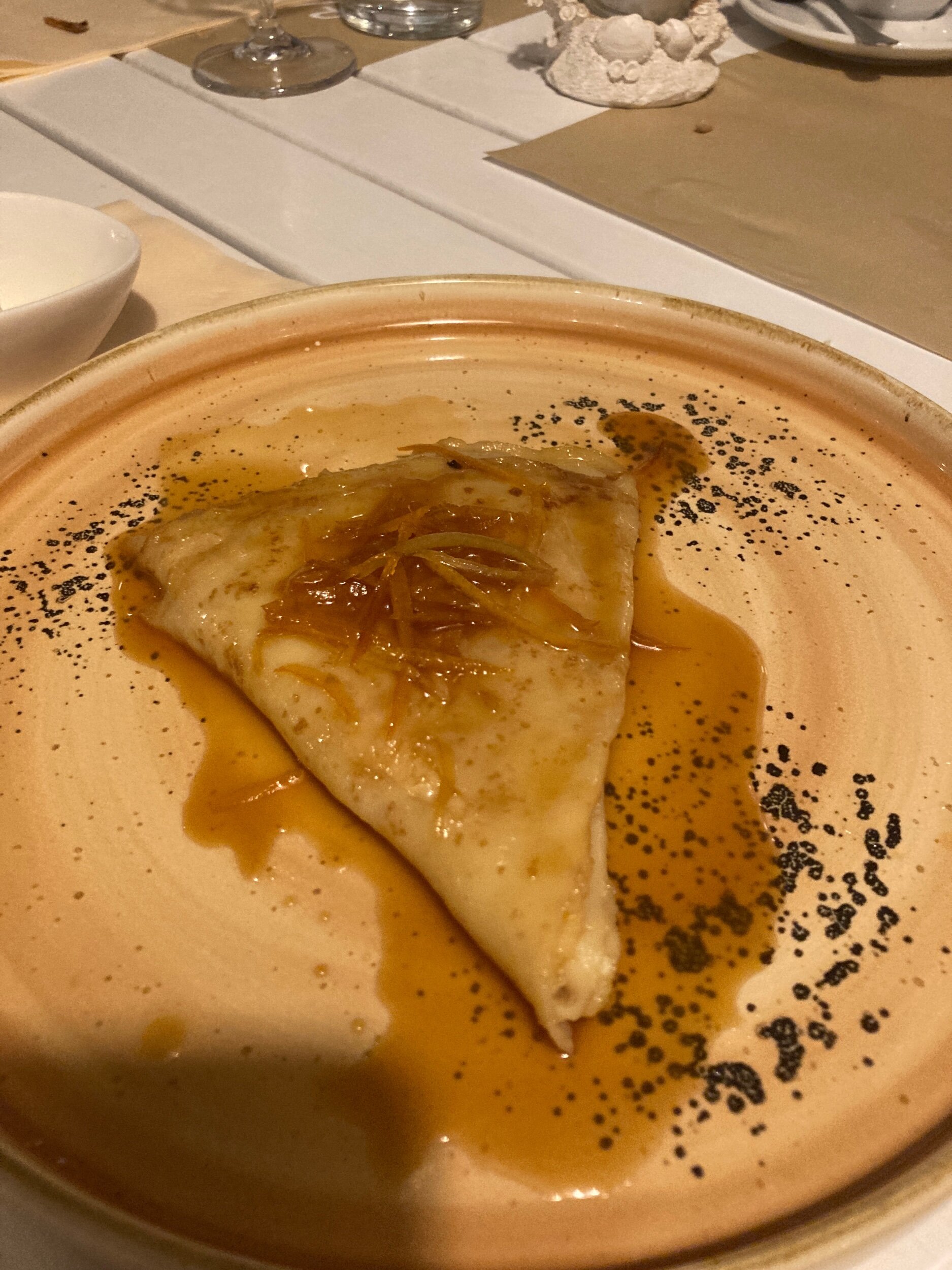The Duomo of Siena: A Masterpiece from Floor to Ceiling
To say that the Duomo of Siena is a masterpiece is an understatement of great magnitude. The building itself is a 13th - 14th century architectural wonder. The exterior captivates with its multicolored marble facade, statues, gargoyles, detailed carvings, and stripes. High above the central door, above the round window, is a beautiful gold backed mosaic, the Coronation of the Virgin. This panel sets the tone for the cathedral which is officially the Cattedrale di Santa Maria Assunta - dedicated to the Assumption of Mary.
The ornate interior is gasp worthy - from the soaring black and white columns to the colorful almost delicate ceiling, to the ring of popes (172 of them) high up on the walls. Where to look next? To the dome, the altar, the elaborately carved marble pulpit, the stained glass? There is a treasure of famous sculptures within the church including a sculpture of Saint Paul by Michelangelo on the altar just outside and to the left of the Piccolomini Library. A Bernini sculpture of Mary Magdalene, tucked away near the entrance to the Capella della Madonna del Voto, is graceful and sensuous - I think this is my favorite of all the stunning sculptures in the cathedral.
Bernini’s Mary Magdalene
The Piccolomini Library, along one side of the cathedral, is awash in colorful frescoes (by the artist Pinturicchio) telling the life story of Pope Pius II. That these vibrant colors have endured for some 500 years is a small miracle.
There is something enchanting about the triangular blue and gold floor tiles in the library, scattered with half moons (a symbol of the Piccolomini family). The oversized choral books that line the walls are beautifully hand-illustrated. And that ceiling !
Piccolomini Library, Duomo of Siena
But, as spectacular as all that is, what recently drew me to Siena was the chance to see the floor. The floor, with its centuries old mosaics, is usually covered to protect it from wear but also hiding much of it from view. But September and part of October are the months of the pavimento scoperto (the uncovered floor); there is no better time to visit the Duomo. Within the floor are runs of border decoration in a variety of engaging patterns. In many other churches these would be the main attraction in a mosaic floor. Not so in Siena where they are just a compliment to the more elaborate works.
The huge expanse of floor contains more than 50 individual works completed over time in the 14th and 15th centuries. Different artisans (most local to Siena) crafted the floor using marble inlay or marble graffiti (a technique that adds color by scratching the light colored marble surface and adding in black color). The scenes tell of bible stories, historical events, and allegories. There are beautiful female oracles, the Sibyls, along the sides of the nave.
In the center of the nave are larger works, for example the round inlay with the She-Wolf, symbol of Siena, at its center (left, below) and the thought provoking Ruota della Fortuna (Wheel of Fortune, detail below right).
Closer to the altar are elaborate scenes of bible stories. It is difficult to comprehend the artistic skill that created these intricate and captivating works of art. Even the “simple” border pieces are stunning in design and detail. The more elaborate scenes have an amazing sense of color, texture, depth and light.
I could spend hours, days, years inside the cathedral and still find surprises at every turn. Siena will surely call me back again and again to sit in this stunning church and marvel at its treasures.

